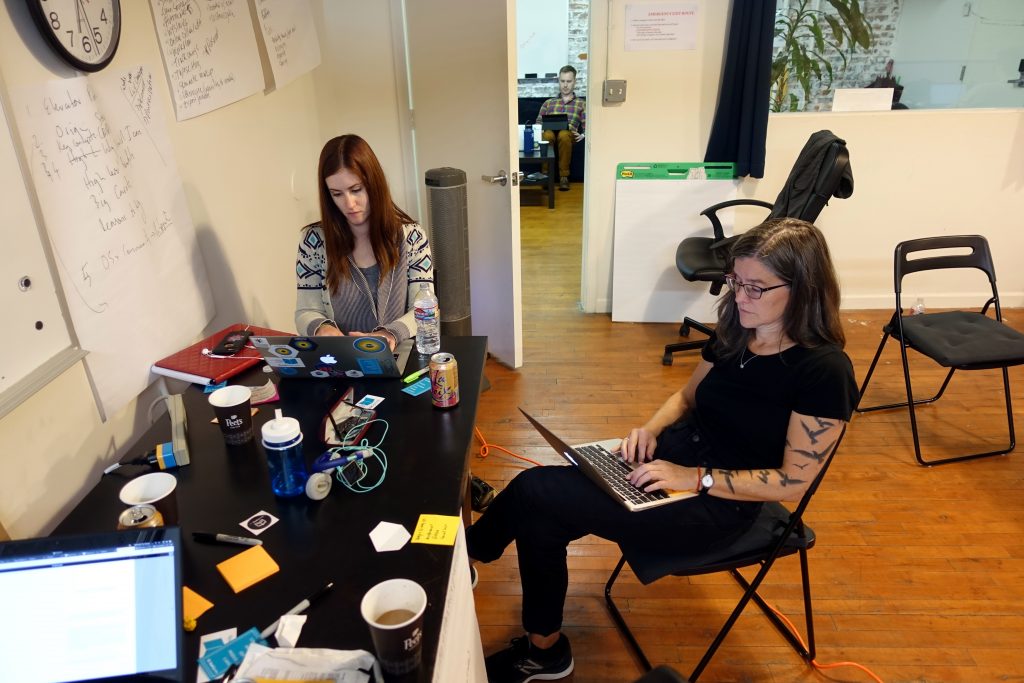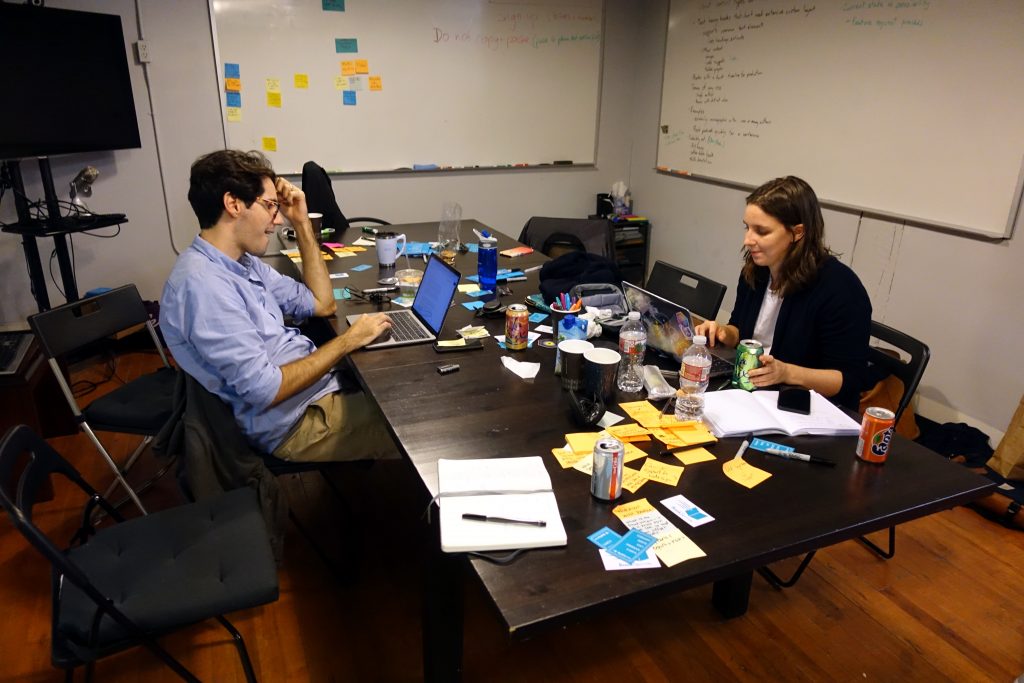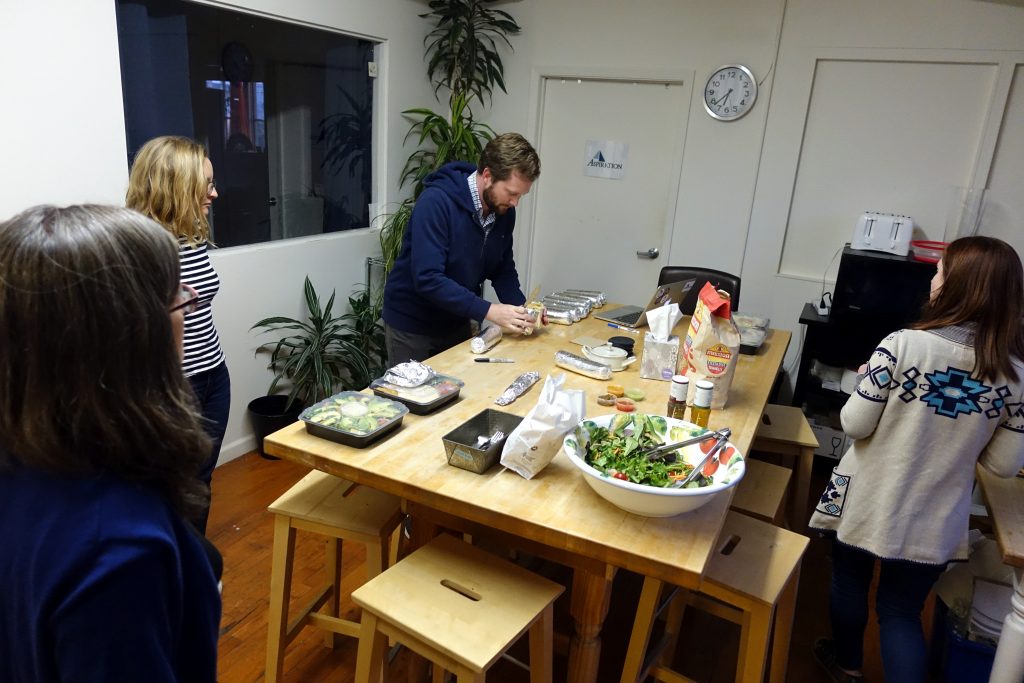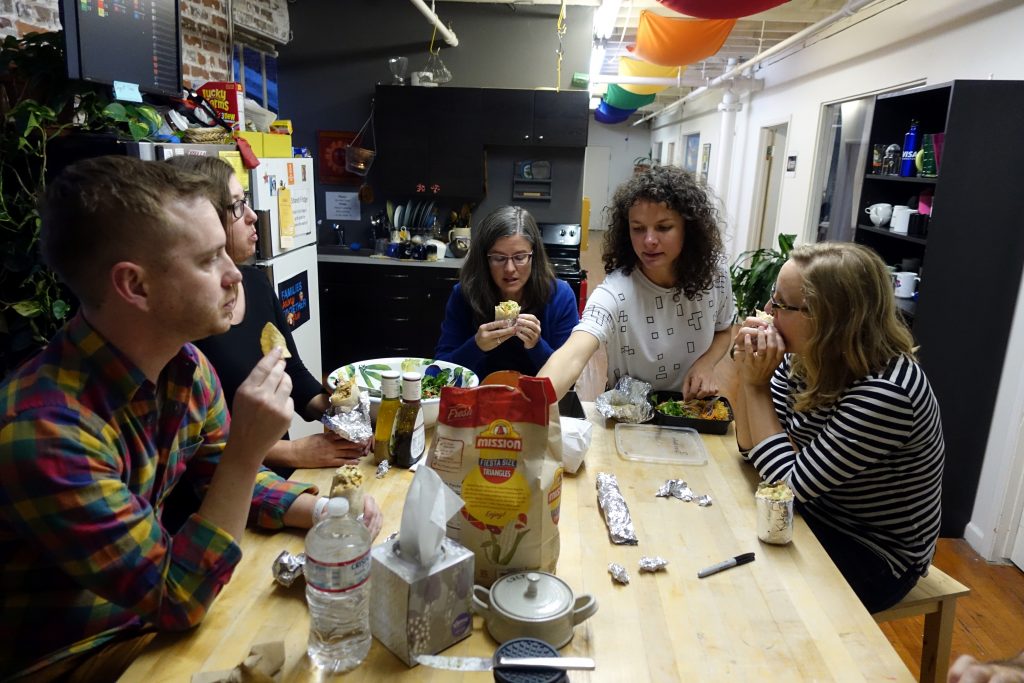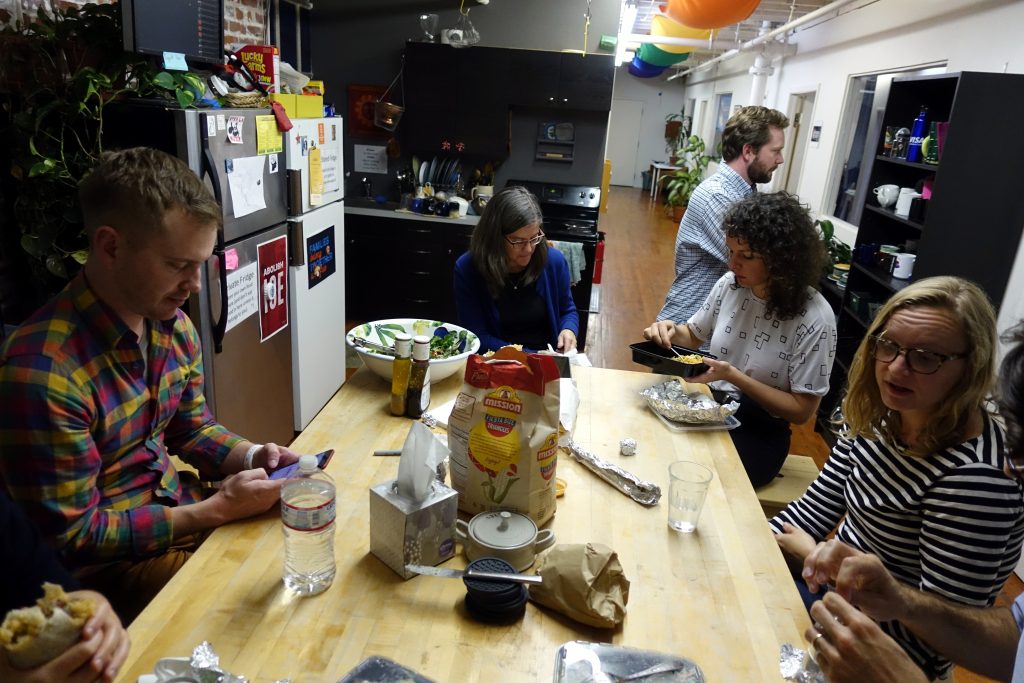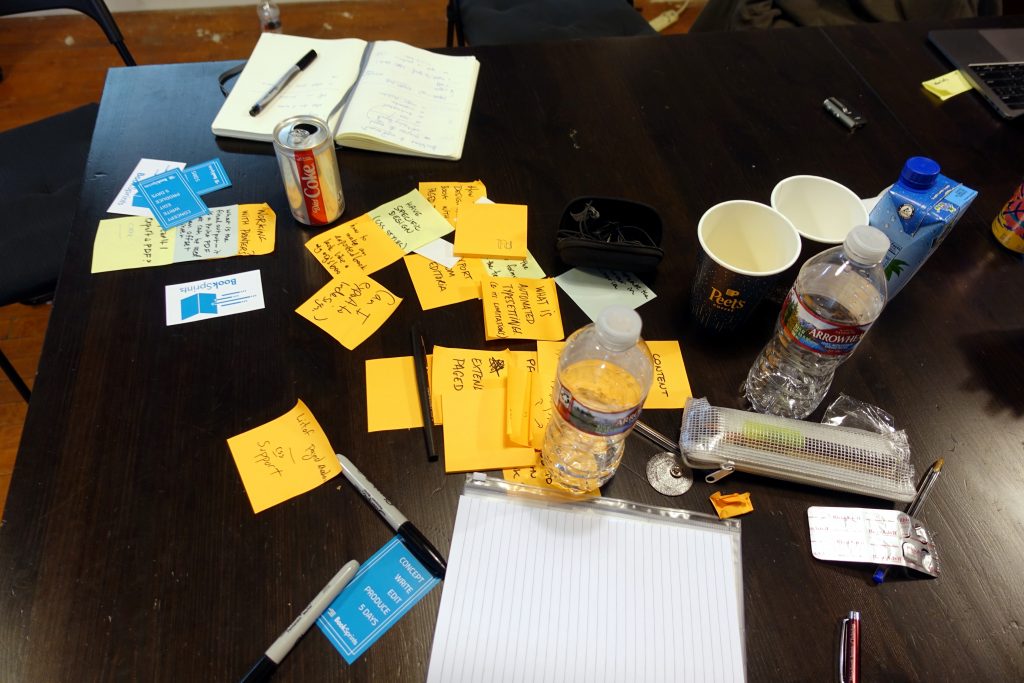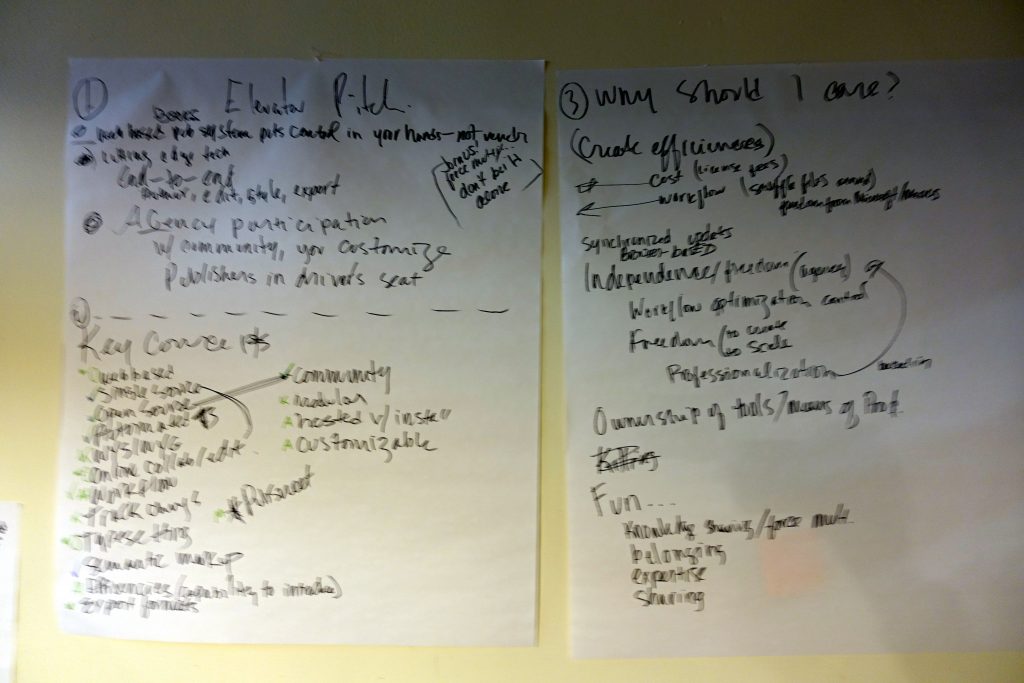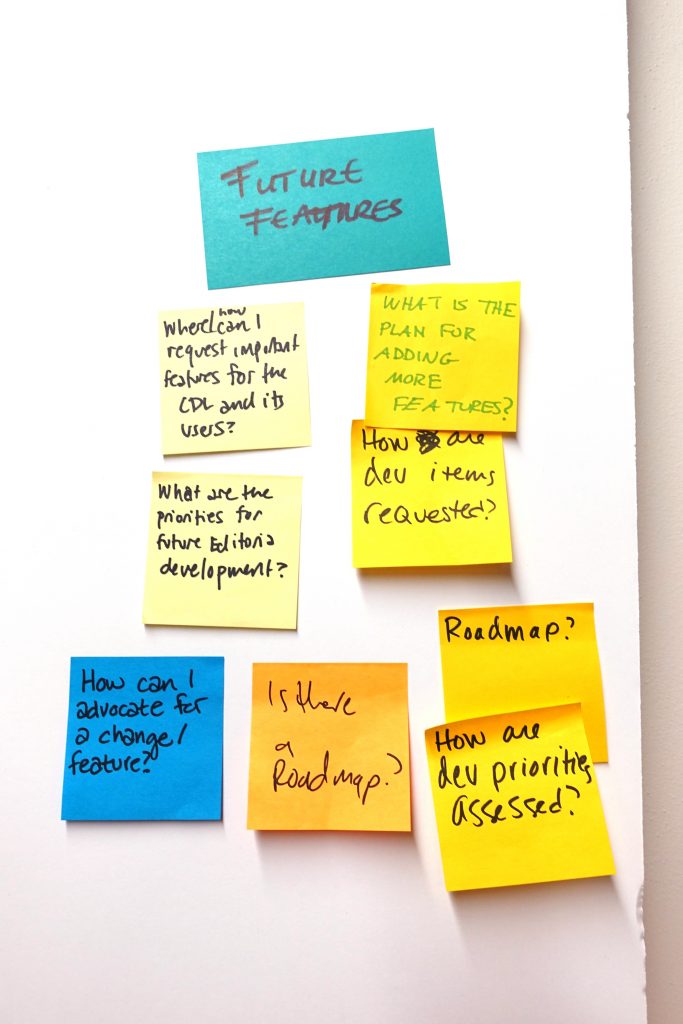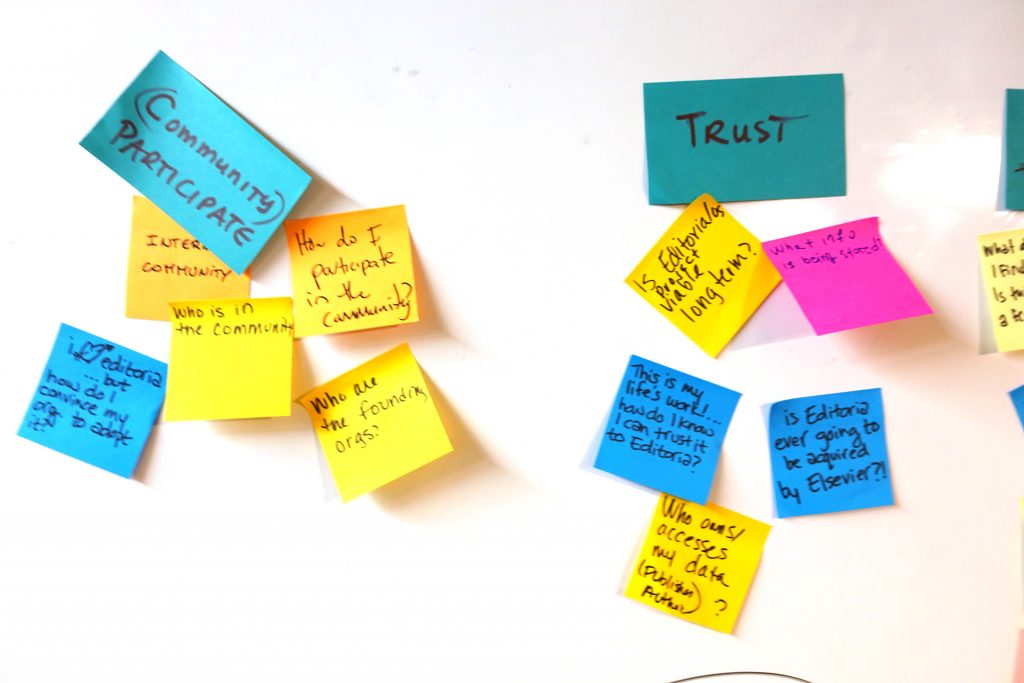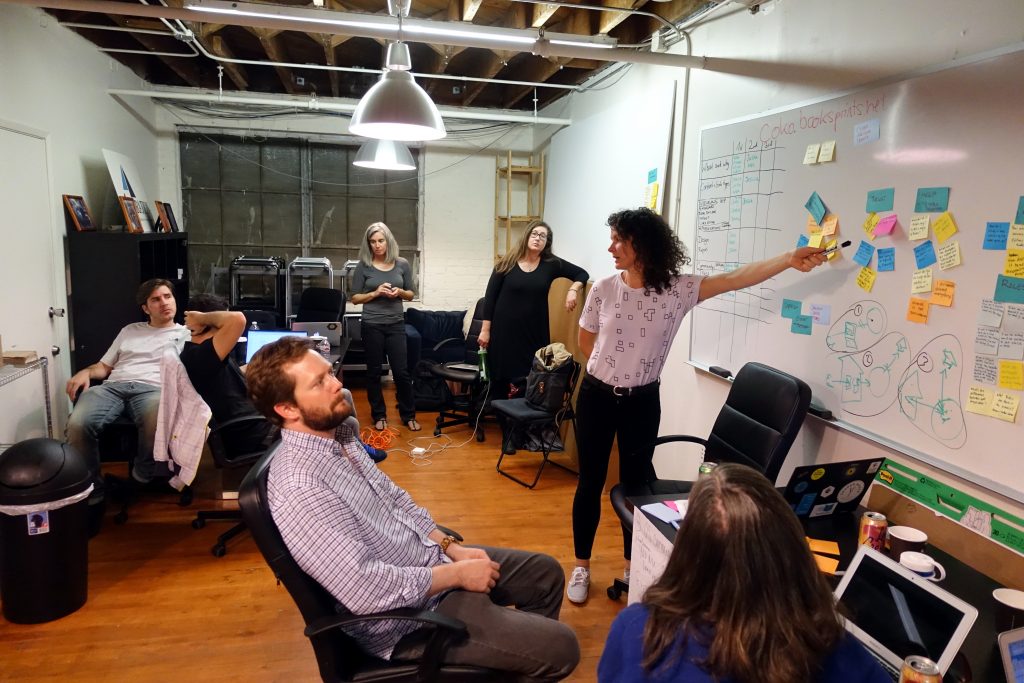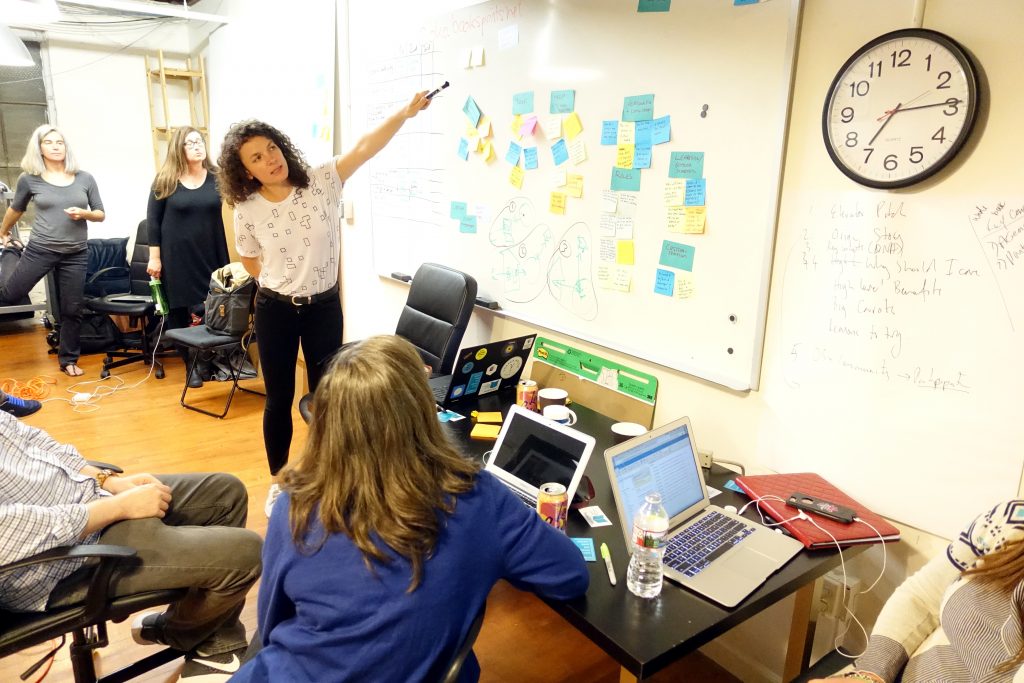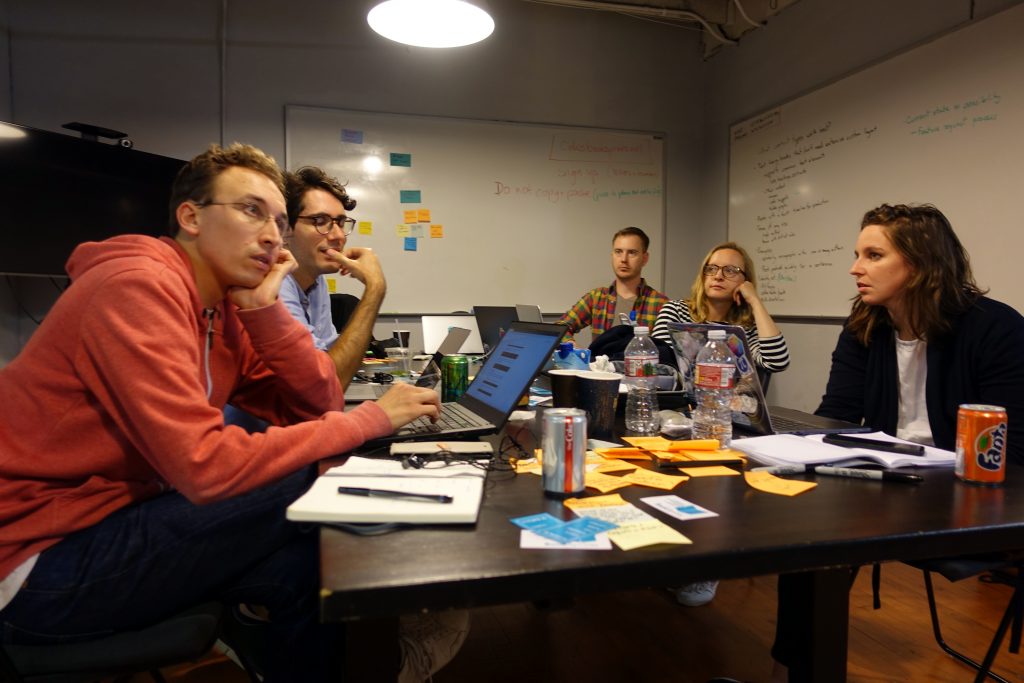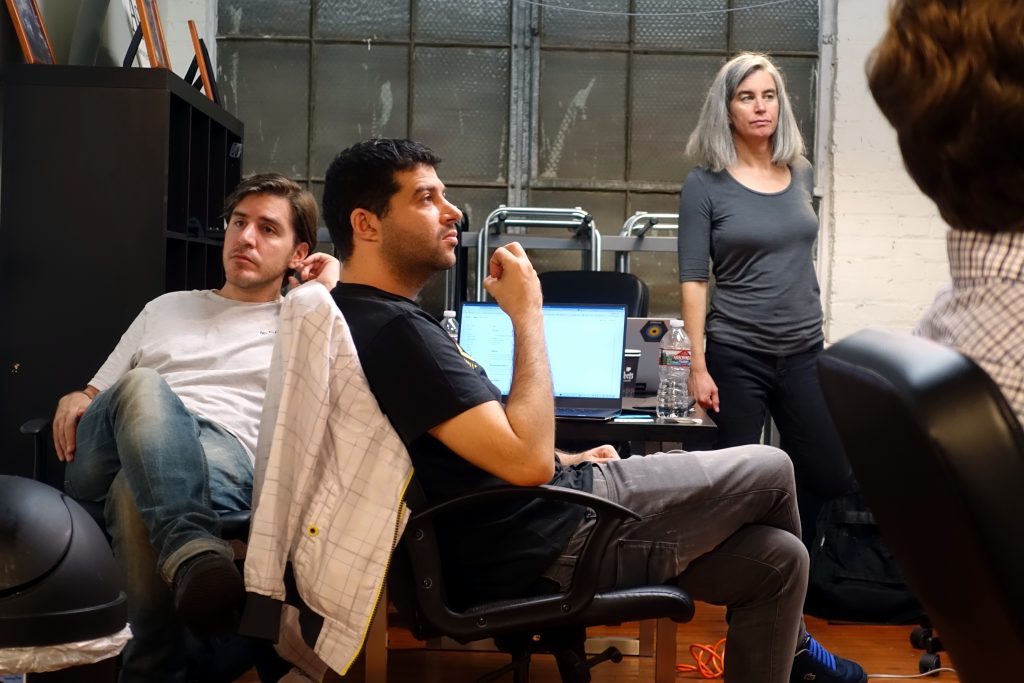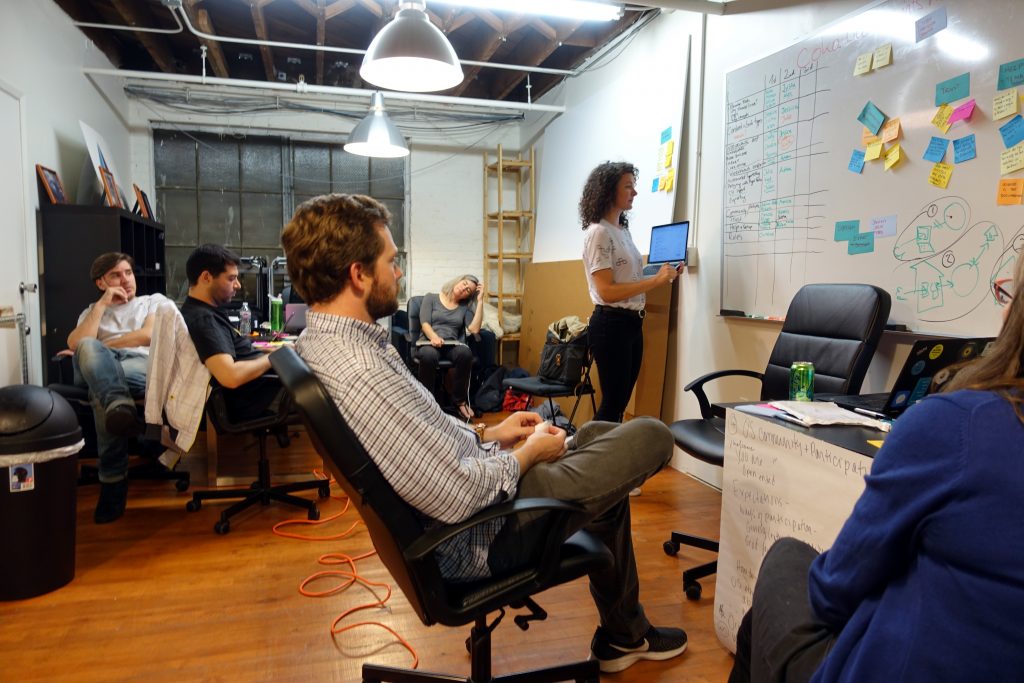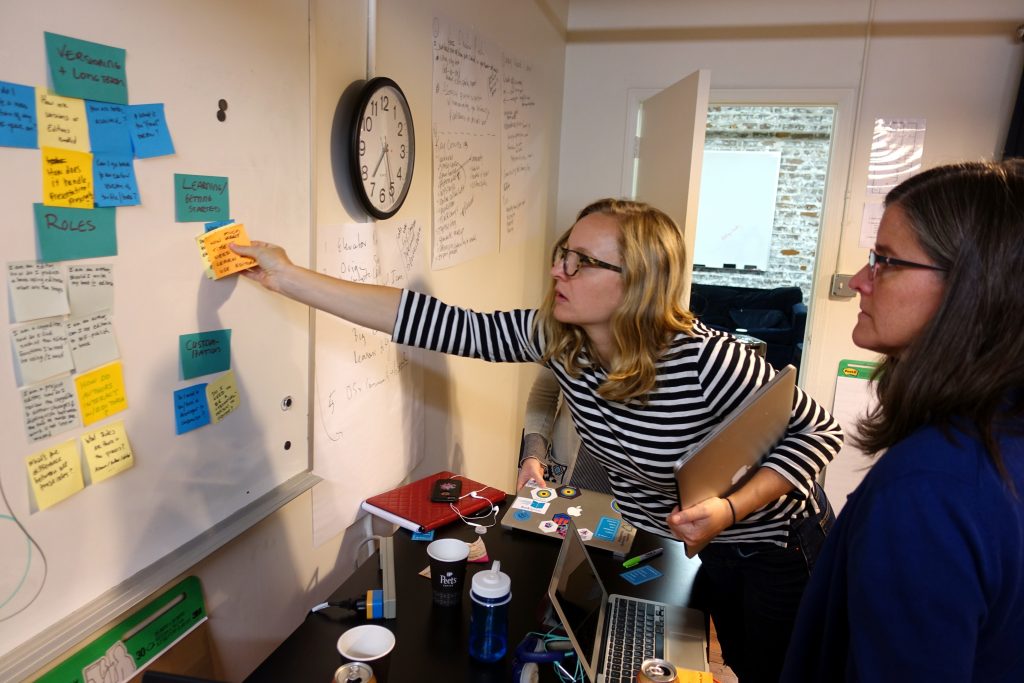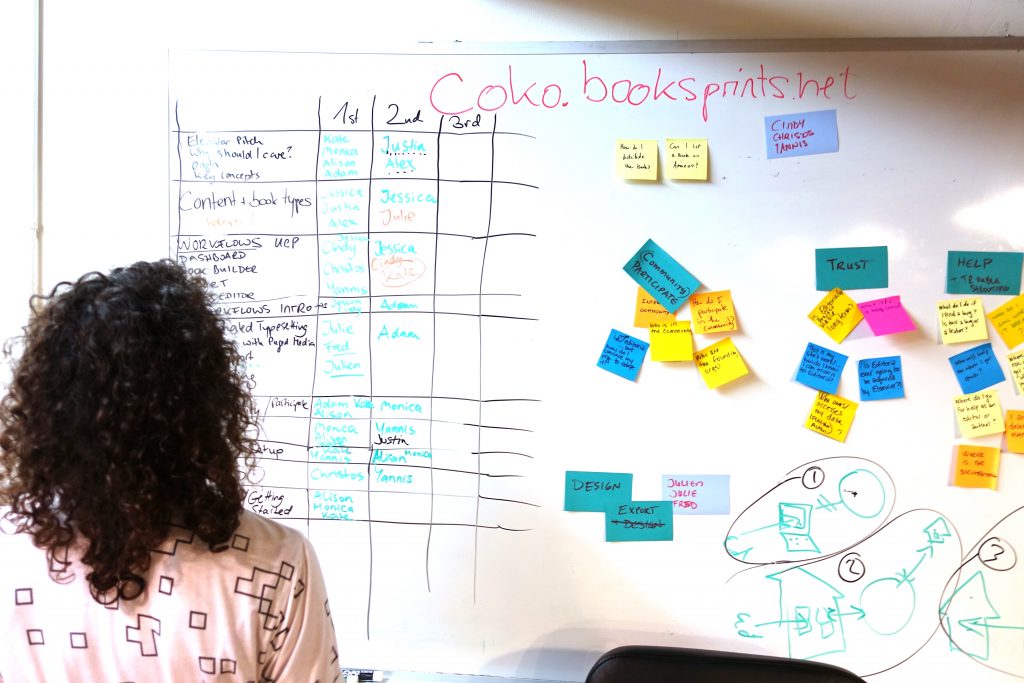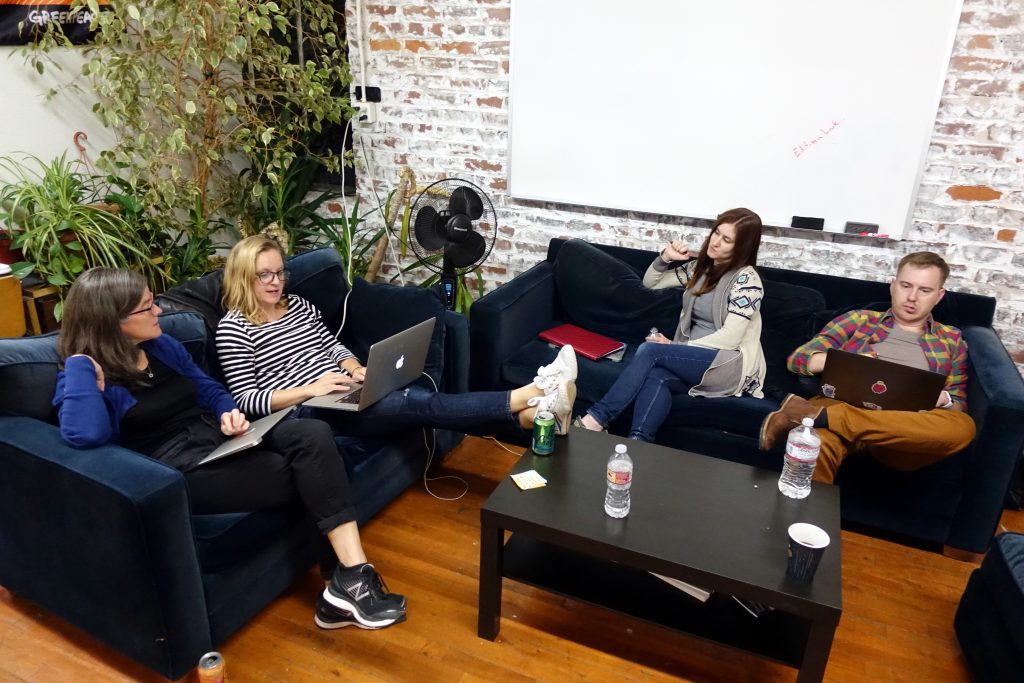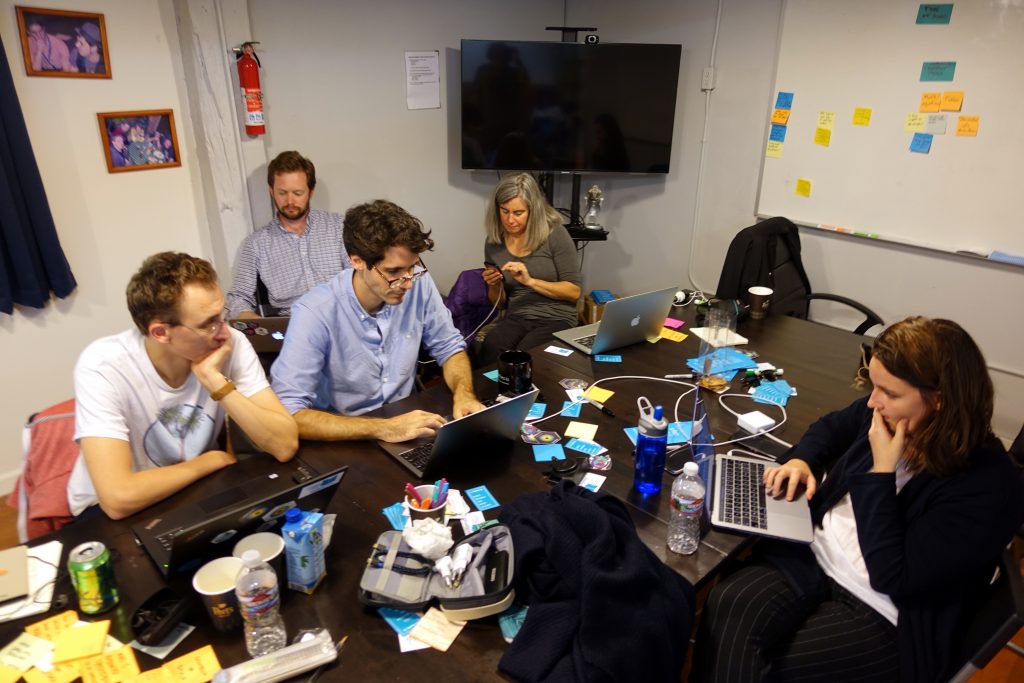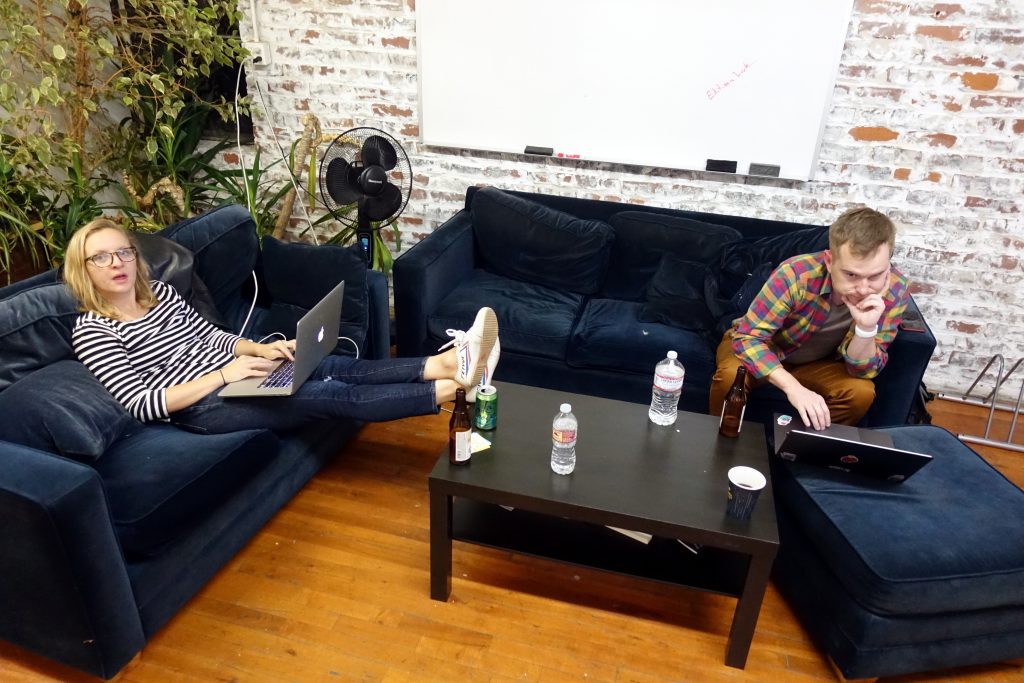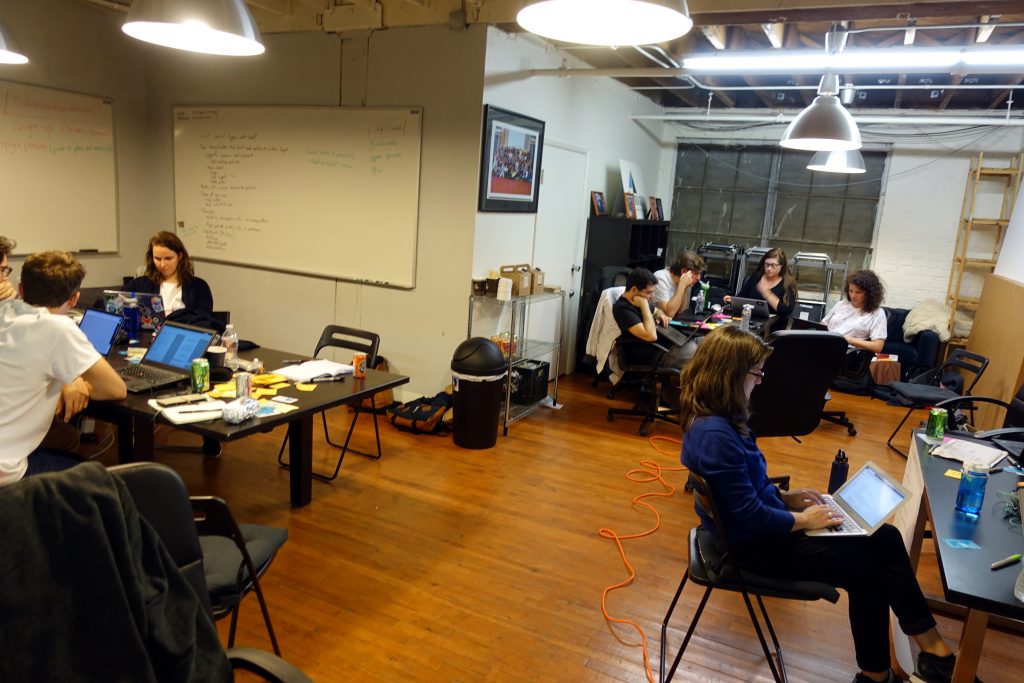Amazing…congrats to Barbara, Karina and the team 🙂 Please share!
Category: Book Sprints
Book Sprints steps it up
The Book Sprints crew upgraded their Berlin office 🙂 looks cool!
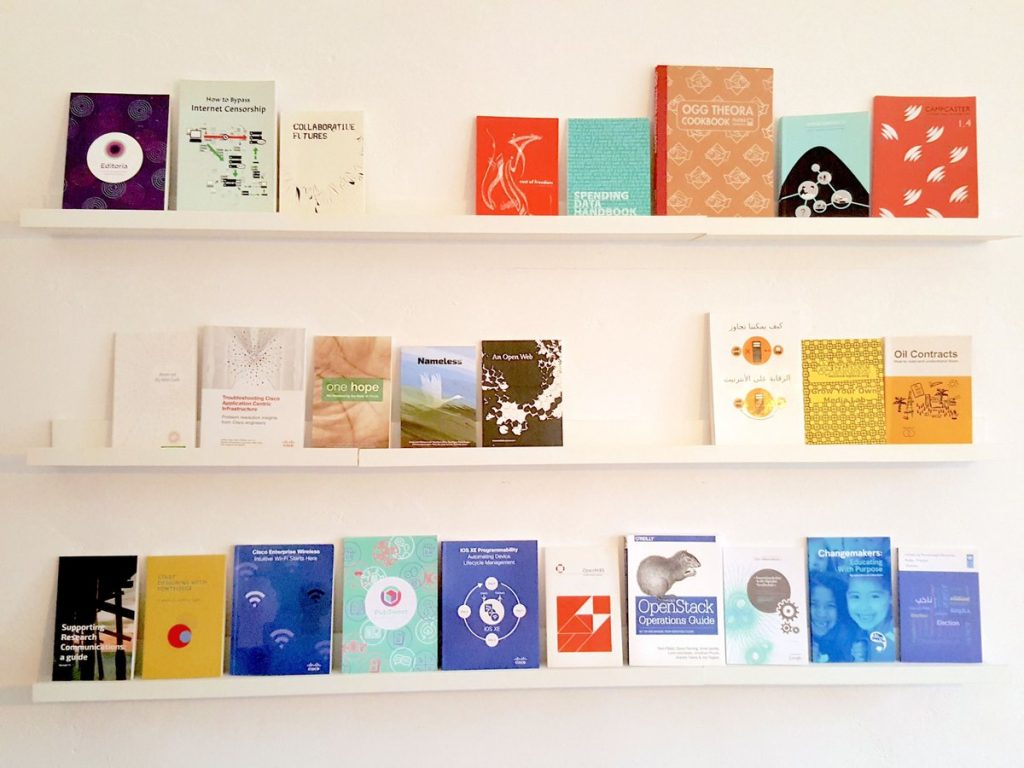
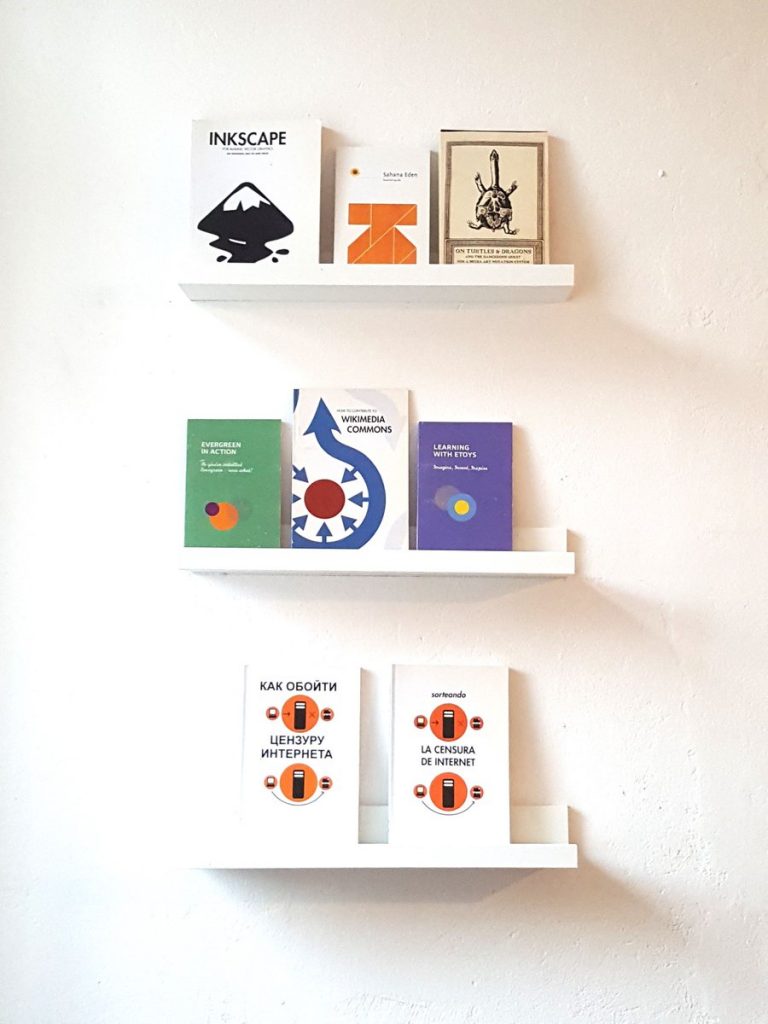
Also they secured the trademark for the US and NZ as well as the EU… awesome news!
2018
So… it’s been a bit of a year. I was pretty busy looking back. I think I spent about 9 months on the road. I did some surfing. Bought a fridge. Plus some other stuff… so…. looking back….
The year started with a yet-to-be formed PubSweet community. PubSweet is the underlying ‘open infrastructure’ piece of the puzzle that enables folks to build any kind of publishing workflow on top of it. It is used for books, micropubs, content aggregation, journals… a lot. But at the beginning of this year there was one org building on top of it – Coko. Now, we have 9 publishing organisations building on it and 13 or so platforms in play. All that in one year… can you imagine. It is phenomenal growth. The best thing is the feeling in the community is awesome. As Geoff Builder recently said at a Coko meet “I can’t say enough how amazing it is that you aren’t killing each other”… very true.
This kind of growth and goodwill didn’t happen over night. I’ve been involved in many open source projects where there is no noticeable growth at all over many years. In fact, it was by watching these projects and trying and failing myself a number of times that I learned how to make this work. I had a plan from the start and strategised this growth. There are a few key parts… First… the proposition is transparent. It’s a no bullshit kinda thing. You can’t buy your way in, you can only be part of this community if you play nice. You must be upfront and work in good faith. If not, then we don’t want you. So it’s transparent, we require transparency, but it is required. If you aren’t transparent then see you later.
Another critical piece was to develop processes for consensus. We have a number of workgroups that have helped with this. We also have an RFC process and 3 meetings in person a year where more difficult stuff can be meted out. It works very well. It is all also, by design. You must intentionally design such stuff and I spent a lot of time working through these scenarios in my own head. It takes time because each community has its own character. You want to make sure you have the right resonance with your strategies and sometimes I need to ponder this stuff a lot, let it sit and then bring it about. Also necessary is to have leadership. I provide a lot of that but I also strategised very explicitly for Jure to be the central pin for the PubSweet community. He is an awesome leader of the PubSweet clan but also it must be noted that this doesn’t ‘just happen’. Jure and I spent a lot of time talking through these things, working out what sort of tone we needed, how to best enable people to feel they could be part of this while curating it so it’s not a free for all. Jure has really risen to the challenge and IMHO stands as a case study of good community leadership.
Andrew Smeall from Hindawi and Paul Shannon from eLife have been early leaders in this community. To have such goodwill and leadership from folks like Andrew and Paul is really amazing. They have been in boots ‘n all from the beginning and never blinked. They are heart n soul and mainstay keepers of the PubSweet community ‘way’. I feel very privileged to work with them.
Also at the beginning of the year, Editoria was alive but no books were being put through. We have since changed that with at least three scholarly publishers using it in production as well as Book Sprints using it (recently used in a World Wild Life Fund Book Sprint). We got there also by careful strategy. Alison McGonagle-O’Connell has been out there presenting, demo-ing, and explaining Editoria to all comers. Alison is a joy to work with and I admire her can-do immensely. She’s a tough cookie and now the wizard of Editoria. Alison has brought people closer to Editoria which peaked this year with a Editoria community event. We got about 35 people there and I facilitated the process (after designing the event loosely based on the PubSweet events). Critical was a newly designed Feature Proposal process. I had to design it so that publishers with no in house dev resources could ‘take ownership’ of the product and also so that publishers, rather than technicians, could write the proposals. We received 36 proposals in 2 weeks from 6 publishing orgs. Amazing. There is now a 3-month roadmap in play because of this.
xpub-collabra and perhaps micropubs will go through similar process transitions next year.
paged.js is also flourishing. I started the project with Shuttleworth funding in Feb and now it is integrated into Editoria and it has already been used for several books. It is also growing quite quickly as a community, some of this is ‘auto growth’ – growth that just occurs with no assist – and some of it is from the efforts of the paged.js crew – Fred Chasen, Julie Blanc and Julien Taquet. Julien in particular is proving to be a very good community leader in this area. They are an amazing crew doing amazing work. I don’t suffer from FOMO (fear of missing out) but I really regretted not being able to go to the paged.js workshops in Paris and Brussels in November. They looked amazing.
Then there is Wax…. the editor is growing fast. We had to rebuild it because the libs we were using were not supported and slow growing. But Christos knuckled down and got it done.. amazing. It is currently a one person endeavor but watch this space as I have plans for community growth around it next year.
XSweet, the XSLT docx-to-HTML converter is also going great guns. V2.0 with math support out in the next weeks. This more or less completes all the things we need form it and the lib will flick into a maintenance mode.
Then there is Workflow Sprints. The process I designed for helping publishers work though their workflow woes. It takes 1 day per org/workflow and has proven to be extremely effective. I’m now training facilitators to do this as it is proving popular and I can’t do them all next year if it comes down to that. Coko is also able to generate revenue from it which is cool.
Then there are design sessions which I still facilitate for various products including Editoria, xpub-collabra, and micropubs. All interesting projects and the design sessions are fun and sooooo effective. Who said publishers couldn’t design their own solutions? Not me…
Also this year I have been peripheral to the Book Sprints team. I gave up direct involvement when I got my Shuttleworth Fellowship. Thankfully Barbara was there to take the helm and has done an amazing job. We have had a couple of meetings this year and it has been awesome. We broke 1m NZ this year for the first time…amazing. Many people still don’t think it’s a real thing 😉
Also from Book Sprints we get many requests from people who love what we do but want ‘not a Book Sprint’…ie they have some other format/media/context etc they want to think about. So this year I have also founded SprintLabs to act as a bucket to put these experiments in… more on this in the new year.
Also this year I finished my Shuttleworth Fellowship having reached the 3 year maximum and became an alum. That was quite a moment. Strange thing is, I feel more a Shuttleworth Fellow now than I ever have 🙂
Needless to say my journey is unconventional. All this stuff is stuff people told me wasn’t possible. All of it. Book in 5 days, impossible! You can’t use browsers to typeset books! Headless modular publishing CMS – impossible! Publishing platforms are an intractable problem! You guys will never be able to build community, it just won’t work!
Yeah yeah. Fuckem.
And there was a lot of other stuff this year too. But honestly, where do I get the time? Where do I get the time to surf? I have no idea. One of the tricks though that I have learned is to trust the people you delegate stuff to. Create an environment for them to succeed and let them go. For the most part I just need to talk things through with them and help keep them and everything on course. They also have to go with my rather counter-intuitive, emergent, way of problem solving and doing things. If they can’t then it doesn’t work out, if they can then we do great things. Which means, of course, lots of travel is needed and talking to people. I am a great believer in remote teams but I am not a believer in remote-ness. If that makes sense. You gotta be close to people so they can trust you and you trust them when you aren’t there. Its for this reason some of our meetings happen on beaches 🙂
It is what it is. It’s been a huge year.
Still, got to make a surfboard this week and 2 Workflow Sprints to go (in the US)… no matter, I’ll be here in no time…

Book Sprints Newsletter
Check it out… incredible year for Book Sprints:
https://mailchi.mp/880fc62a6504/news-from-book-sprints?e=17767057ab
Subscribe here (at the bottom of the page):
Berlin
Good times. Coffee, Book Sprints, SprintLab thoughts, Coffee, food with friends. Repeat.
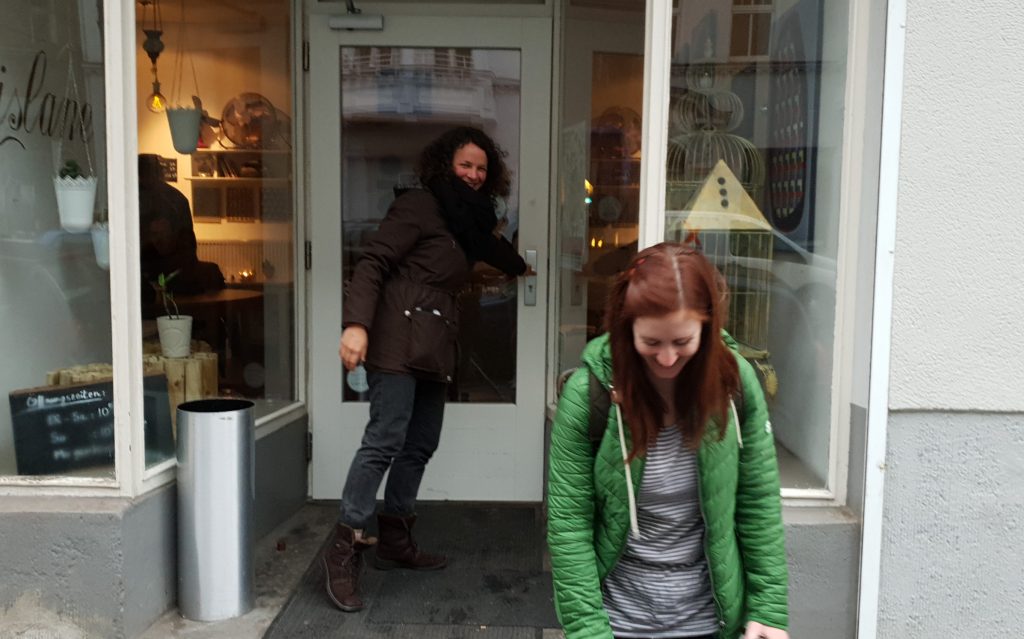
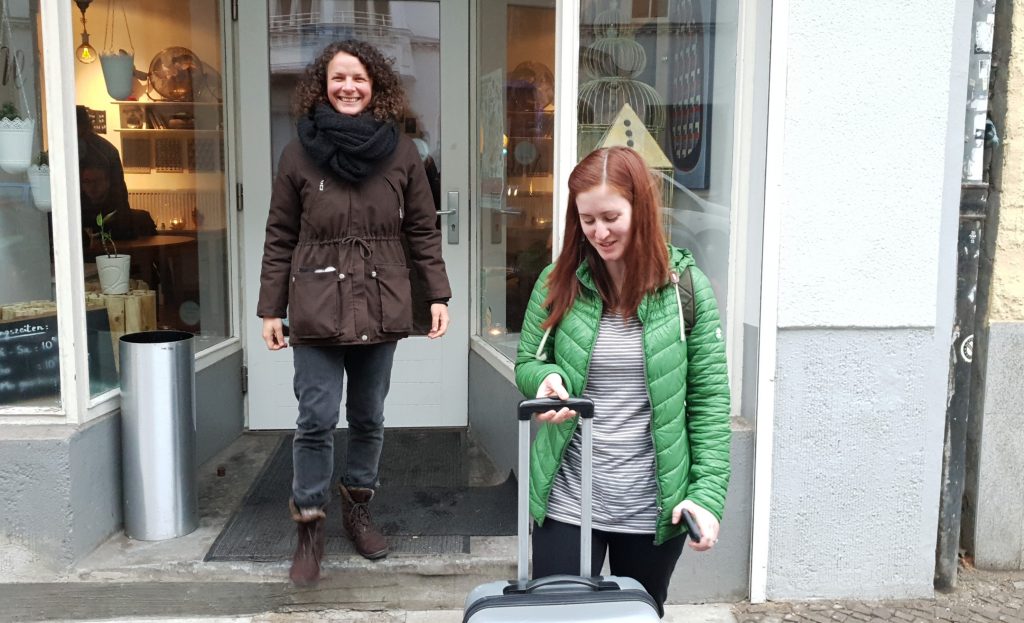
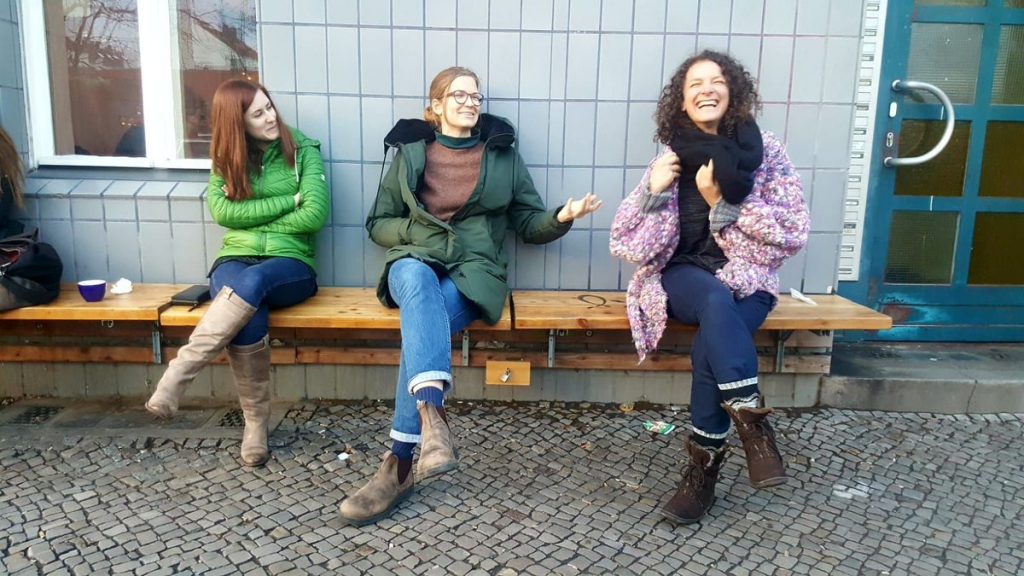

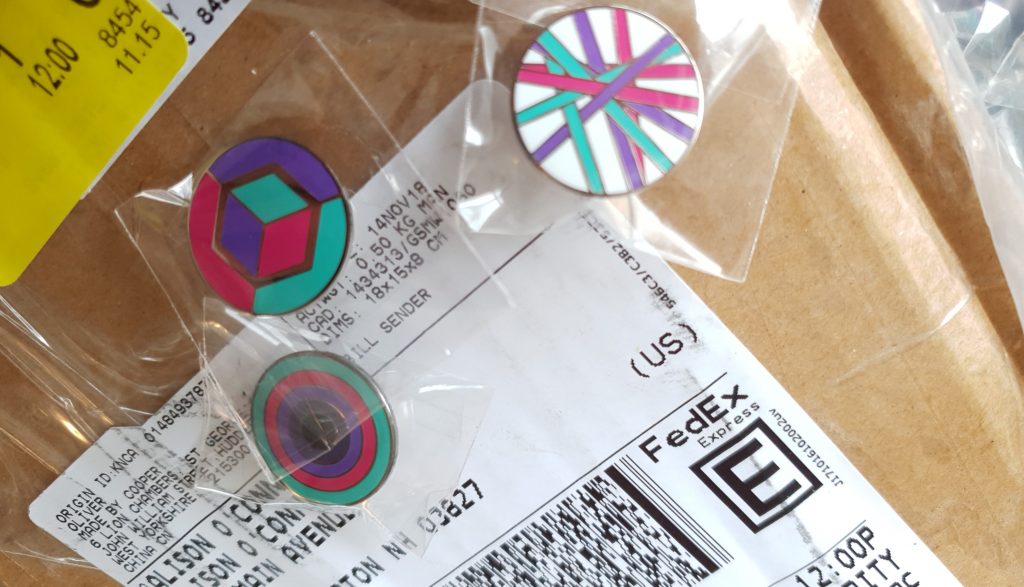
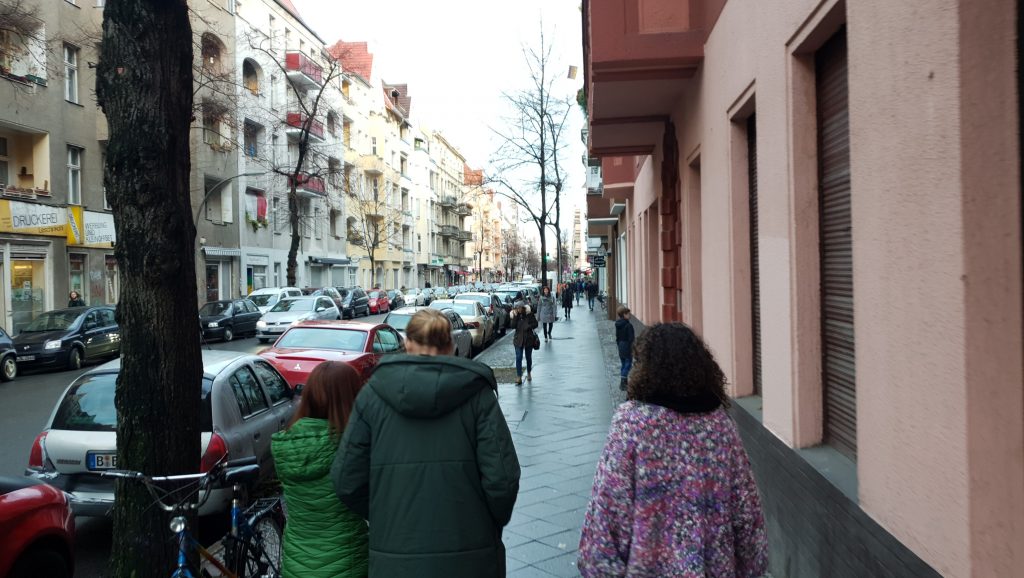
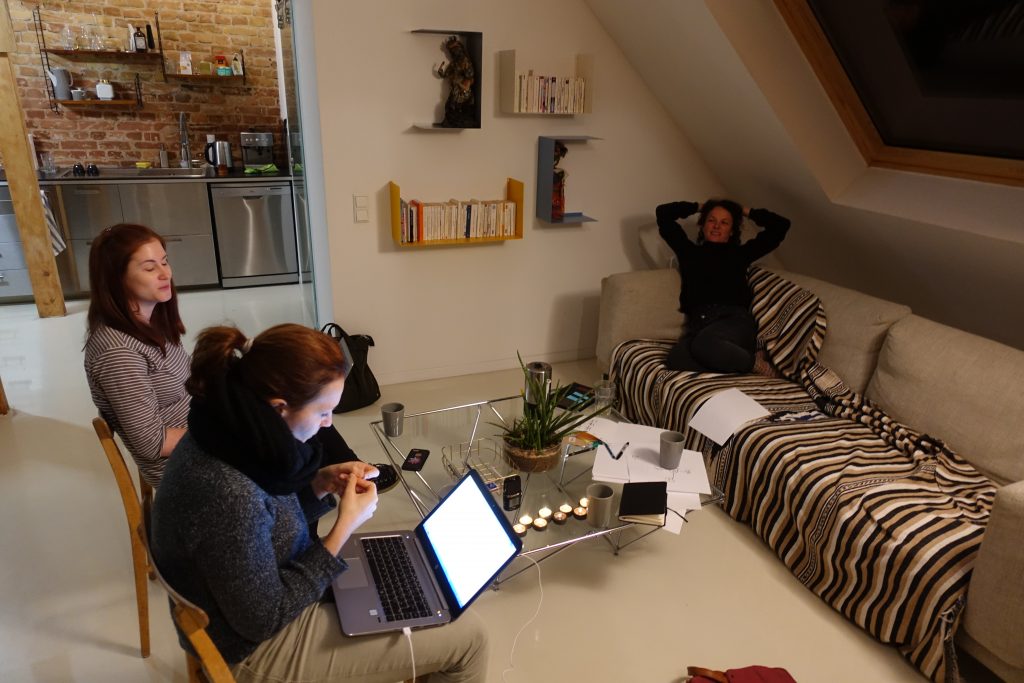
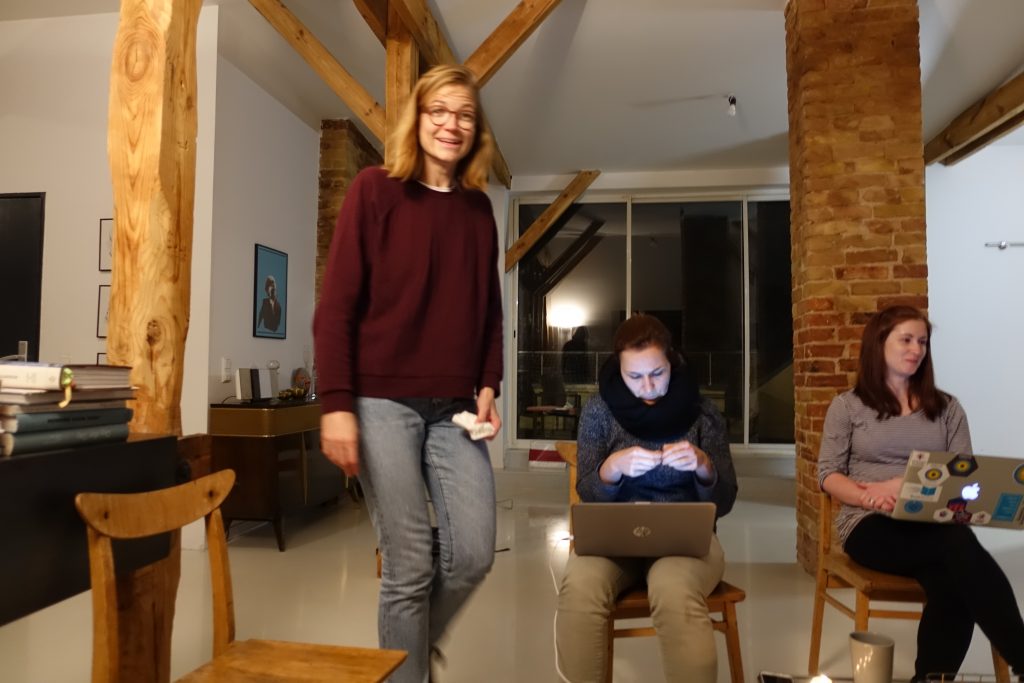
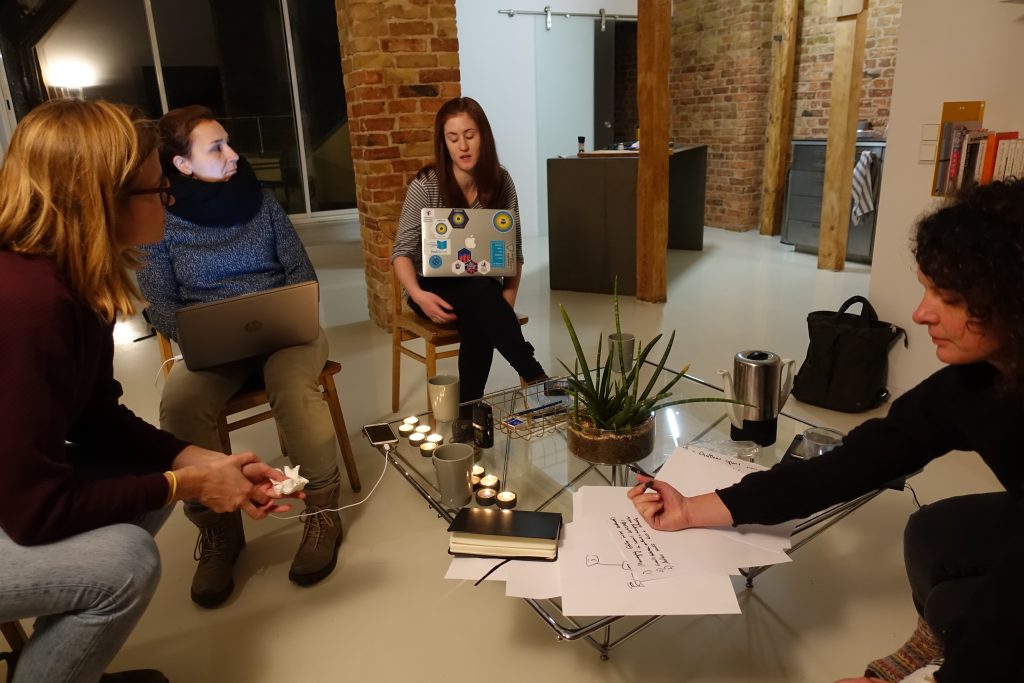
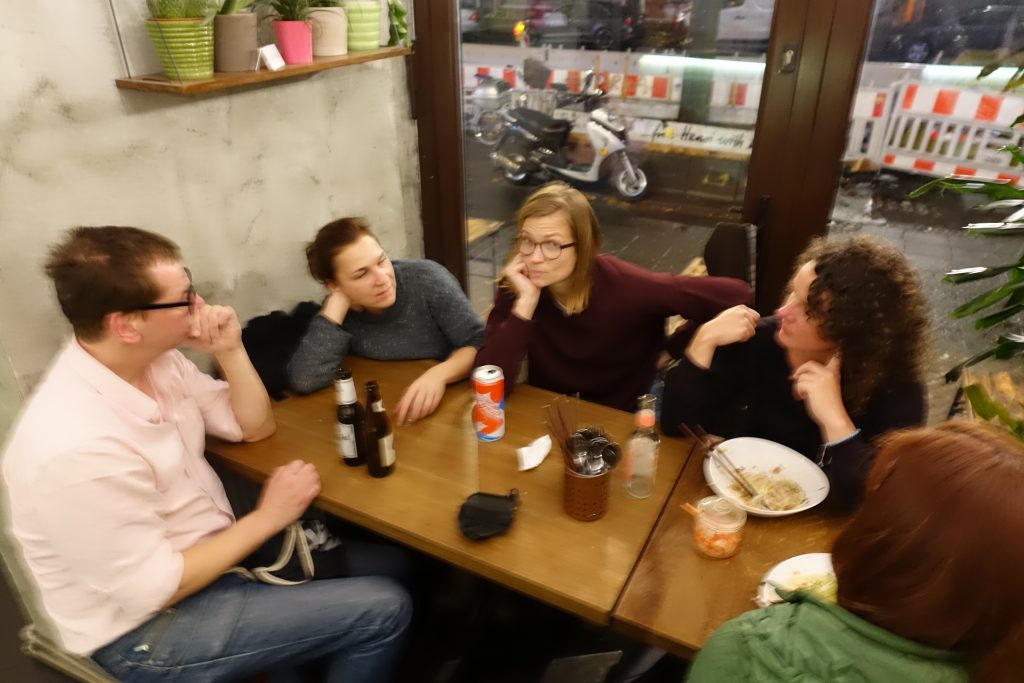
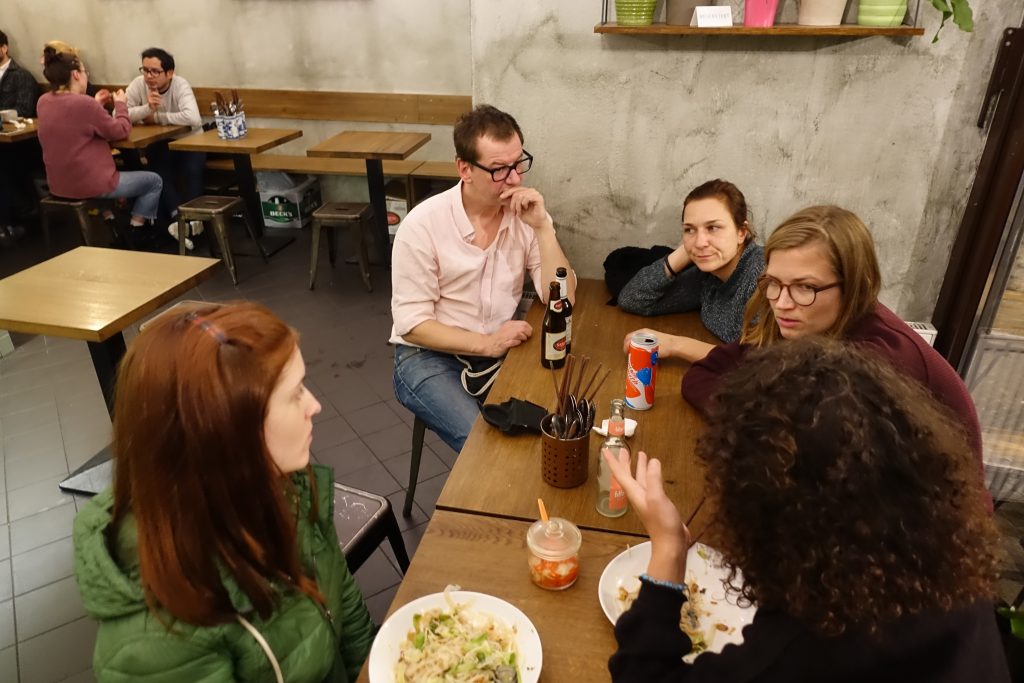
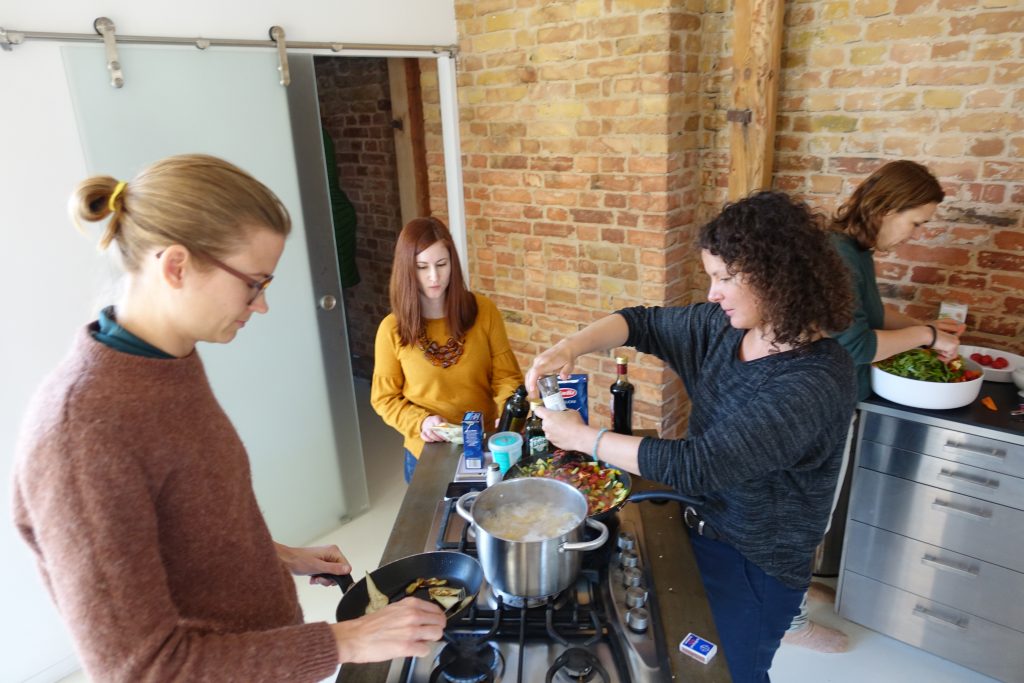
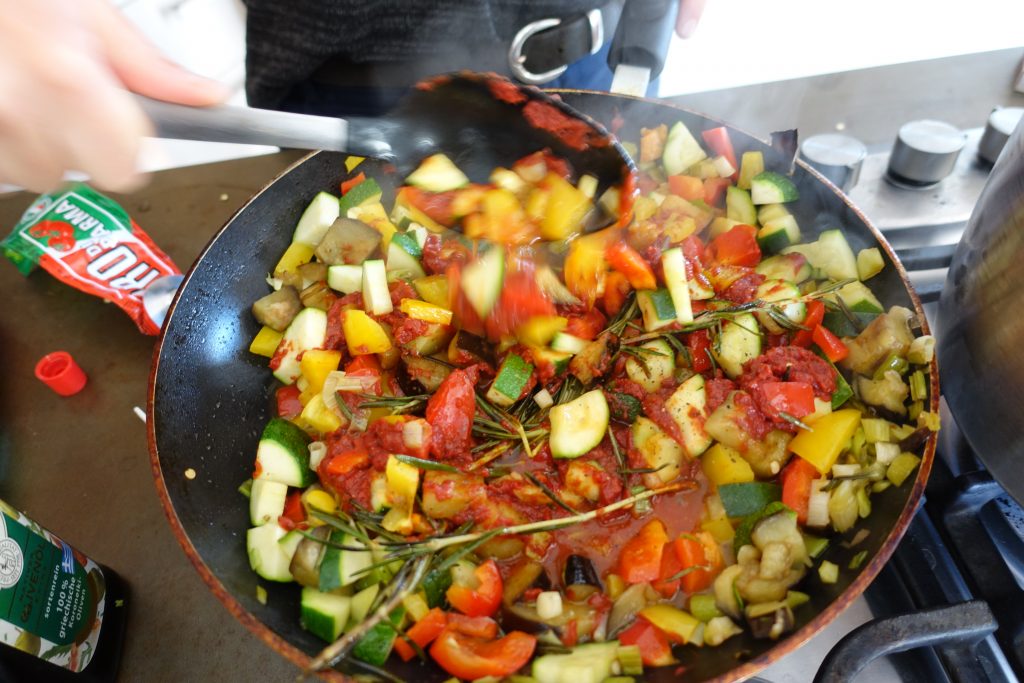
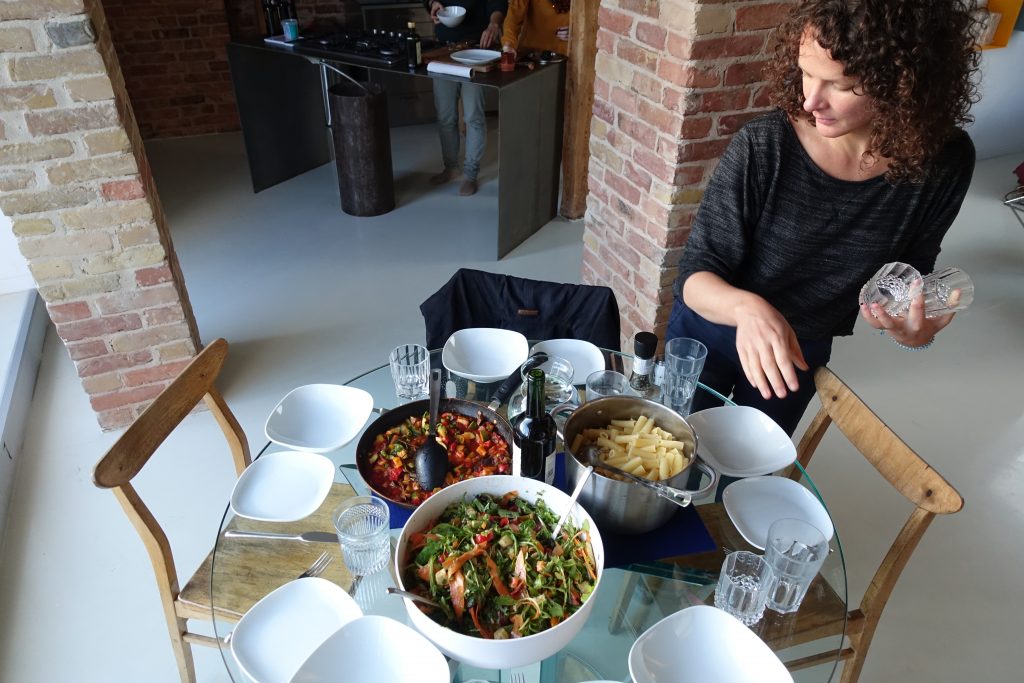
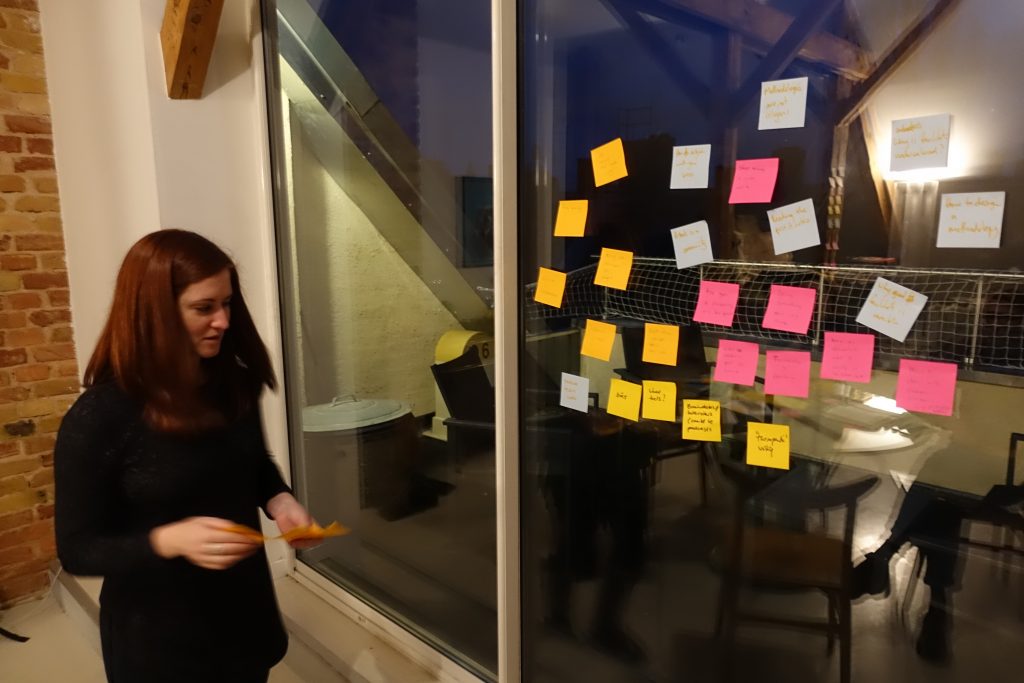
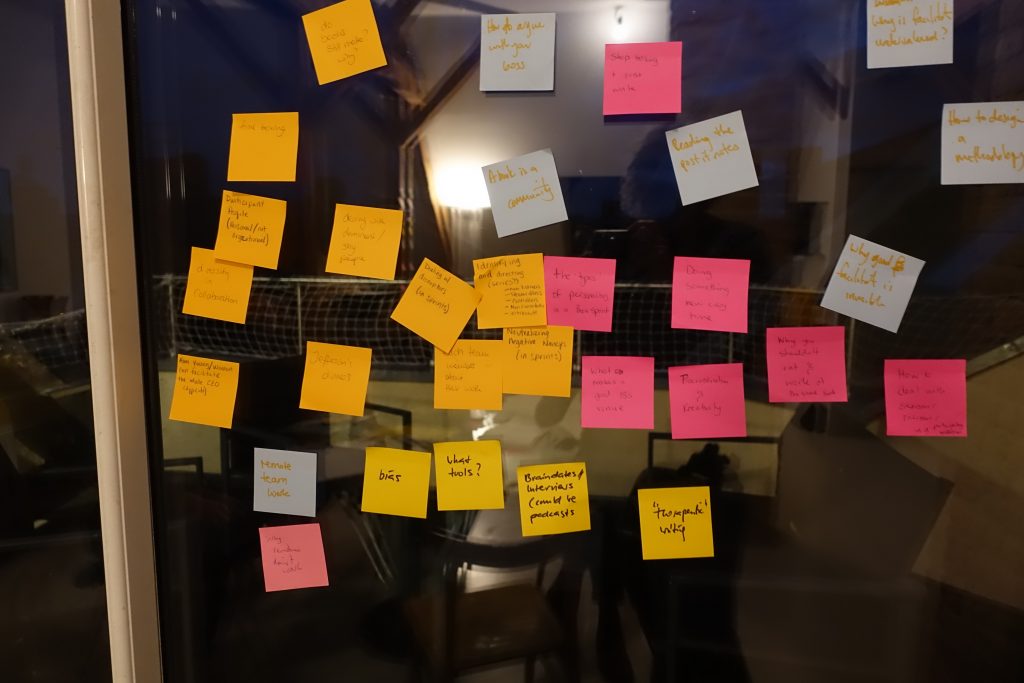
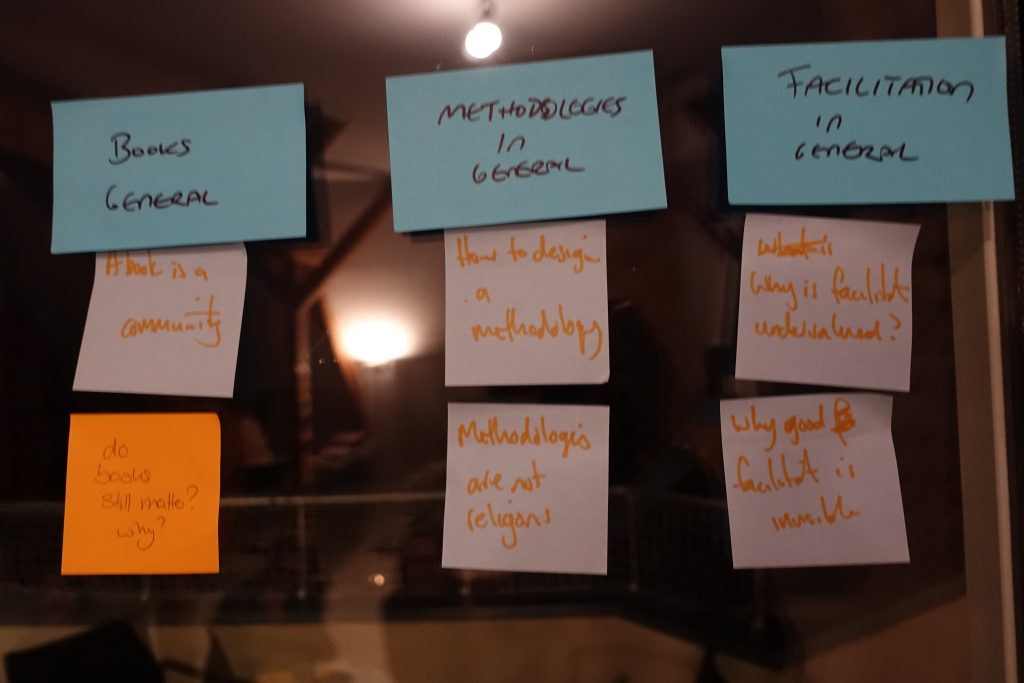
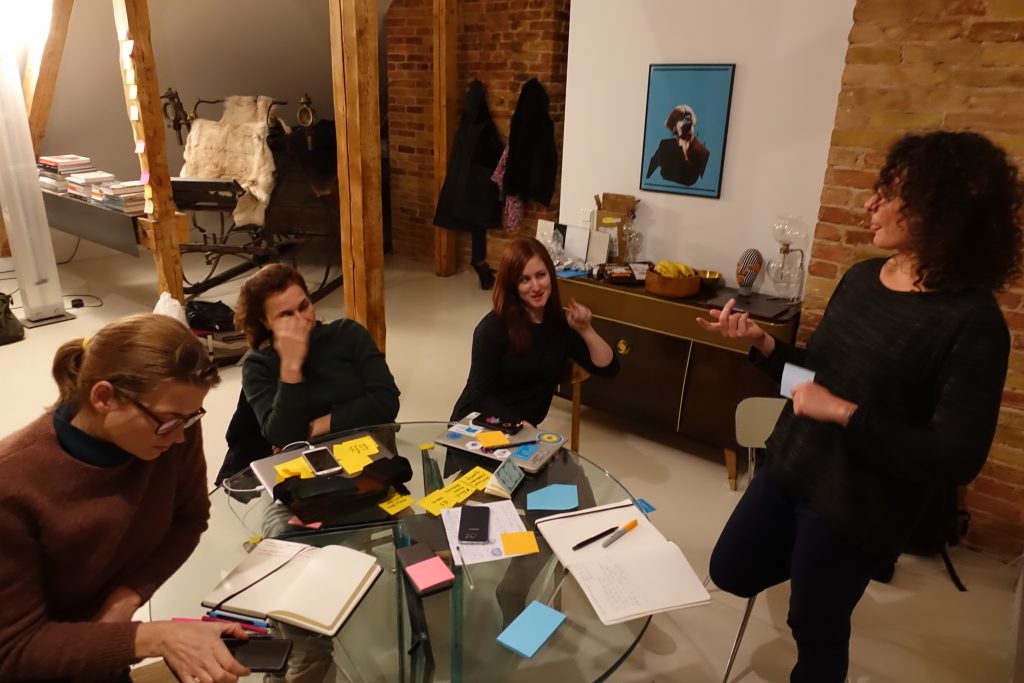
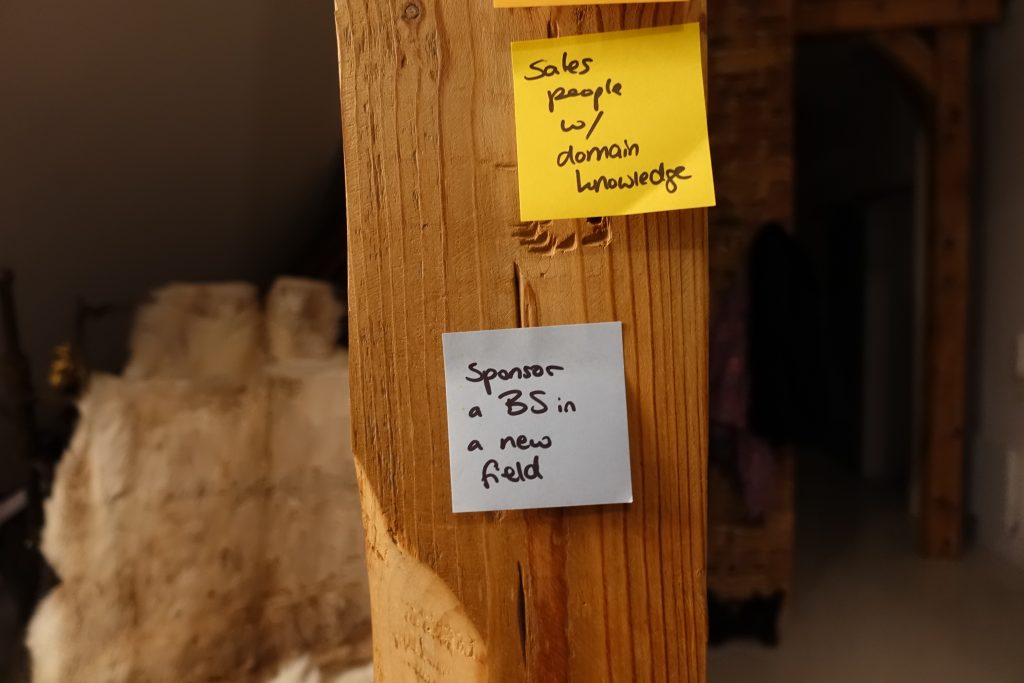
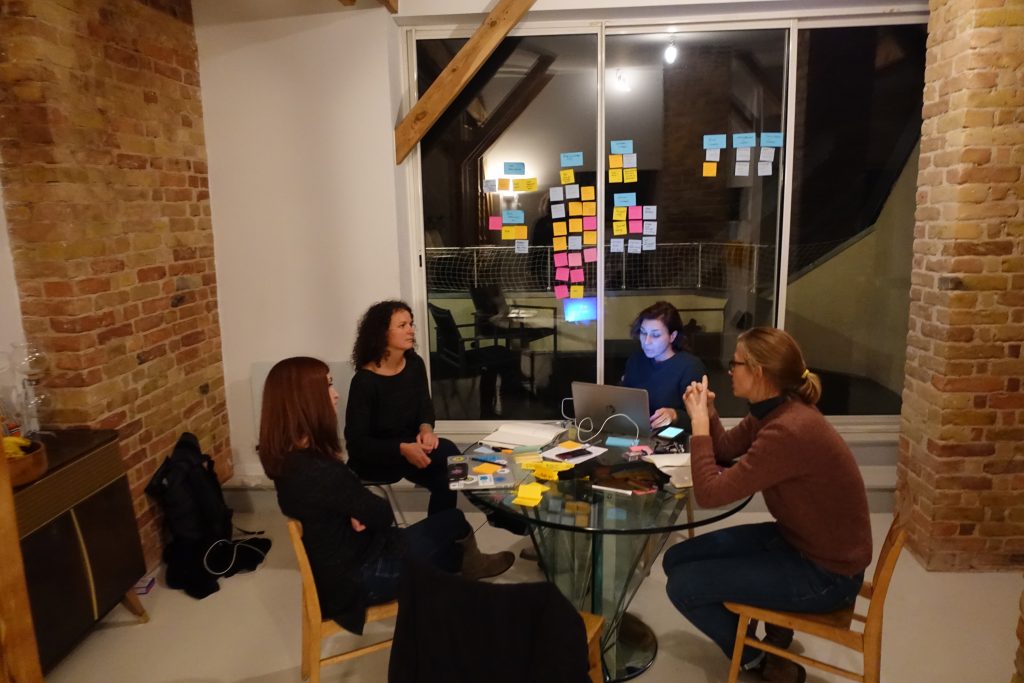
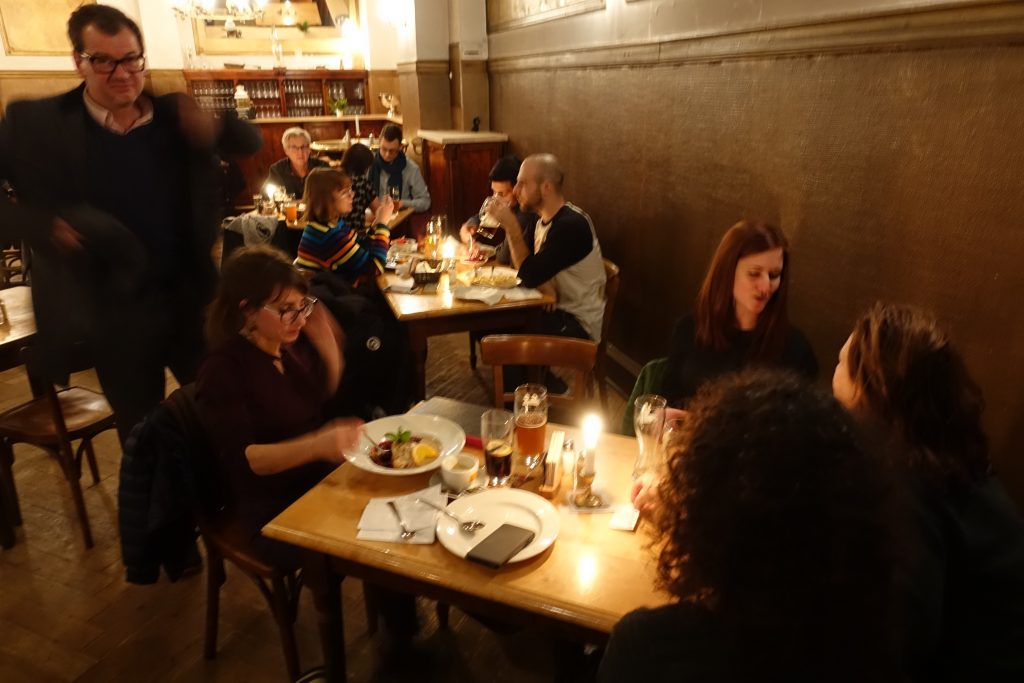
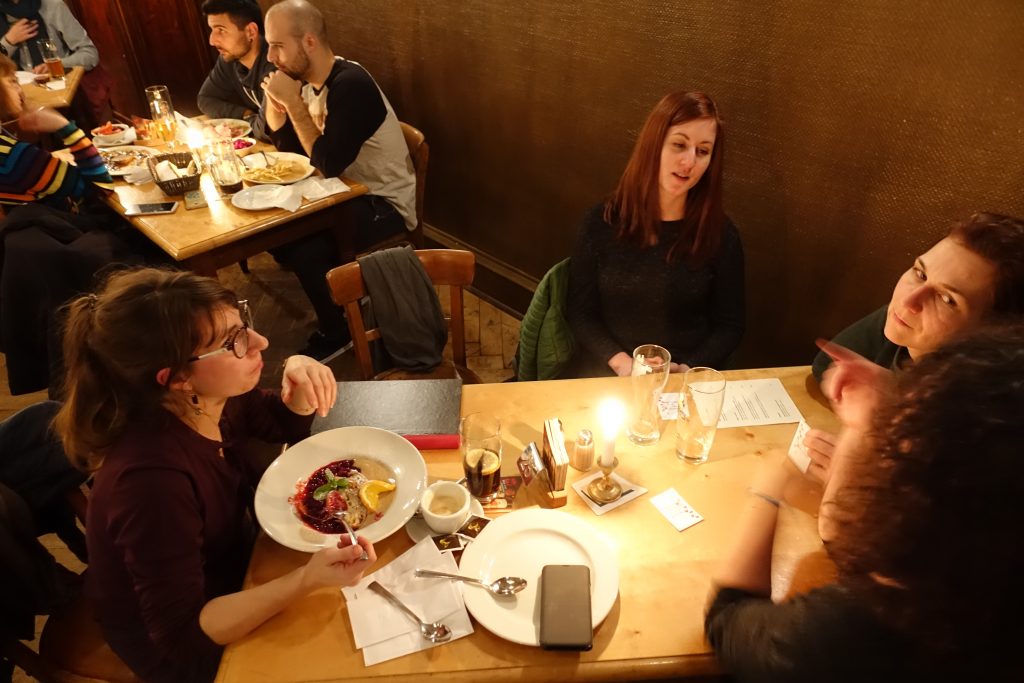
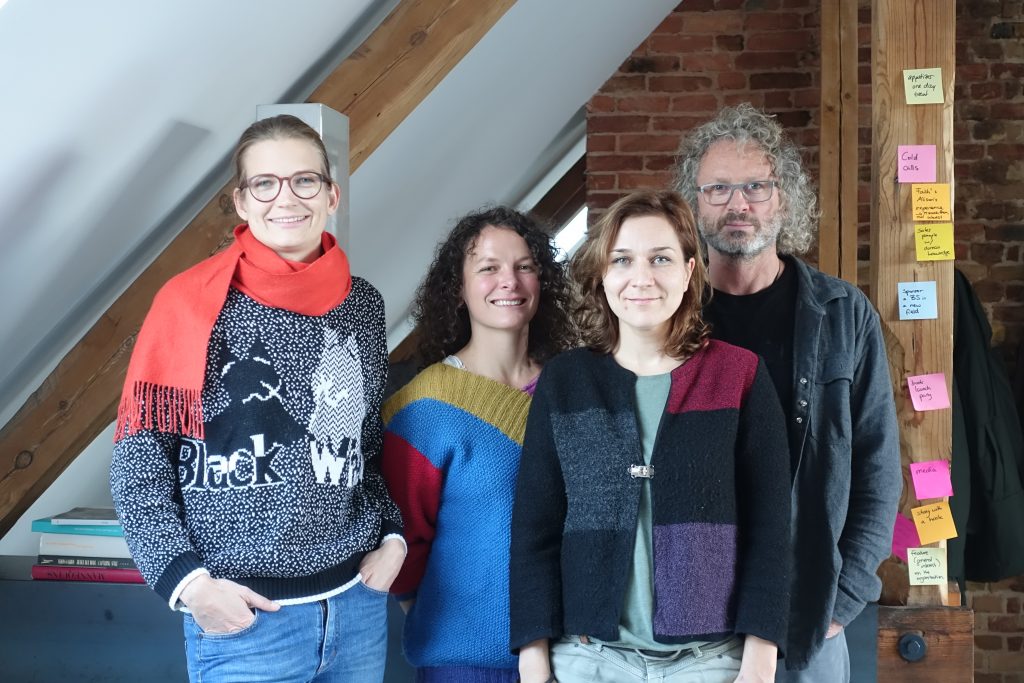
What’s in a Name?
What’s in a name? I say a lot! … actually, I am plagiarizing here… These are lyrics from a reggae band I used to manage back in the day. D-riser. I managed them for about 5 minutes, but in that 5 minutes I did manage to get enough $ for them to release their first album. They were a cool band and I didn’t deserve to manage them. They were far too good.
D-riser sang a lot about Maori rights and disenfranchisement in Aotearoa, otherwise known as New Zealand. Infact, they sang exactly about this issue – the naming of things. Naming is, after all, inherently connected to identity. So why use a European name for a place that was first found and named by Maori? The Europeans knew why, it’s part of the colonialist playbook.
So… zoom forward a few hundred years, and I am asking myself my own questions about identity. Specifically, what is in the name ‘Book Sprint’?
Well, what is a Book Sprint? On a raw level I guess it represents a methodology I created. It took many years of hard work, sleeping on sofas and being literally homeless. Not in the sleep-on-the-streets sense, but in the traveling nomad sense. During this period I was trying to work out how to make this Book Sprint idea work when no one could tell me how and in fact I don’t think there was really anyone that thought it was possible. Make a book in a week? Ridiculous! So, needless to say, there was no revenue from this, as yet, non-thing. I had to prove its value the hard way. So it was, and so it is. It took a long time and now I am very proud of this product of my own stubborness.
Now Book Sprints is a company. It has an amazing team that does amazing work. It has an amazing CEO – Barbara. How we managed to find each other as kindred work spirits I never cease to be thankful for. But that’s also true for all the team. Amazing people.
Book Sprints does amazing work. We produce books in 3-5 days. From nothing. We do it for all comers – activists, academics, corporates, NGOS … the works. We never fail. Never. Astonishing really. If you have never facilitated a Book Sprint, you would not know how hard it is. We face challenges in every event from extremely difficult personalities, to groups that want a book on something they know nothing about. But we facilitate through it every time. 100% success.
So, what’s the connection between a reggae band and Book Sprints… you might well ask. Well, its about the naming of things. Names are important. The name Book Sprints is important, it is the thing that identifies 10 years of working out how to get a group of people from zero to a great book in 3-5 days. It represents 10 years of championing collaboration in the face of enormous skepticism and proving that people working together make better books than those that don’t. Of the power of collaboration and a very special style of facilitation. It represents us. How we are now an expert team doing very specialised work. Book Sprints represents us, our journey and what we have achieved.
So, it is sometimes difficult when I see others, who most often already know about us, use the name Book Sprints to represent themselves. Most often these activities result in failure. It is frustrating. I have talked to people before that have told me they have done a Book Sprint and that it was a failure. Book Sprints suck, its a terrible idea, I will never do it again. Except, I have never met these people before. We did not work with them. They failed because they worked with people that had not had the same journey as us and yet claimed they knew as much as us, were as good at it as us.
We have also had people come talk to us representing themselves as interested in doing a Book Sprint with us. We share a lot of information with them generously. And in some circumstances they have then gone out there and tried to do what we do under the name Book Sprint. In one case they copied our logo, our text on the website, and made a brochure which looks all the world like us, except not us.
The same has also happened with some academics that write about Book Sprints. We have talked to and generously shared a lot of information with them. They then write about Book Sprints as if they invented the idea with no reference to us. That is kinda shameful for an academic.
I’ve even had someone misrepresent themselves as a journalist to interview me, only to discover they were not a journalist. They were just trying to find out as much as possible about how we do what we do. Why bother? I mean, they could have just asked.
It’s been hard to see that. It’s hard to generously share information in good faith when it is then used in bad faith. It sucks.
So, I have come to agree, once again, with D-riser that names are important. The name Book Sprints, as it represents us, is important. It presents us and the work we do. If you talk to us, Book Sprints, you know we can do what we say we can do because we have done it 150 times before without failure. We do not suck. We are extremely proud of what we can do. Book Sprints is us, it is our identity.
So I have decided to trademark the name Book Sprints. I’m not a fan of any sort of Intellectual Property. It also sucks. But trademarks exist, in part, to help people like us maintain a strong identity. I am ok with that.
Our Trademark was approved a few weeks ago
Whose Knowledge
A good buddy – Anasuya – runs an awesome org called Whose Knowledge. A month or so ago they did a Book Sprint with the Book Sprints team and are now publishing the results:
This collection of resources is written as a guide to support marginalized communities – including women, people of color, LGBTQI communities, indigenous peoples and others from the global South – in sharing their knowledge online. We hope to inspire the next generation of knowledge-makers to join in this work within their own communities. These resources are also intended to encourage allies who wish to help with this work. Whether you’re a member of a marginalized community, or an ally, these resources are here to assist you in centering knowledge from the margins.
Editoria Books Printed
We wrote the documentation on Editoria in a 3 day Book Sprint on Monday, Tuesday, and Wednesday. Printed them overnight and gave them to people the next day at the Editoria community meeting! They looked beautiful. It immediately became a go-to text during the meeting!
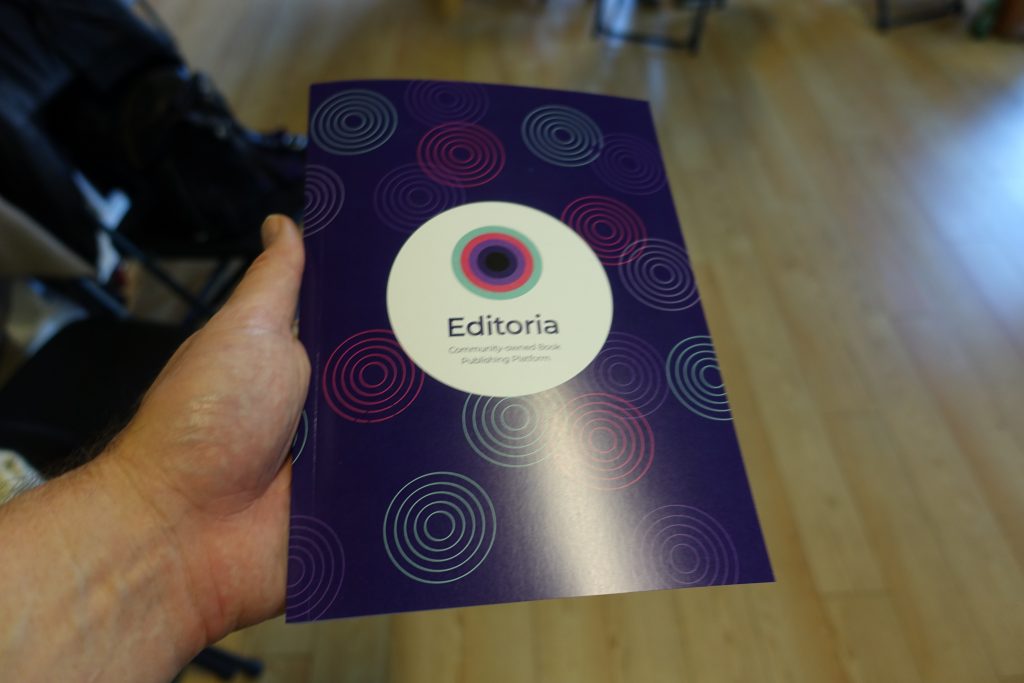
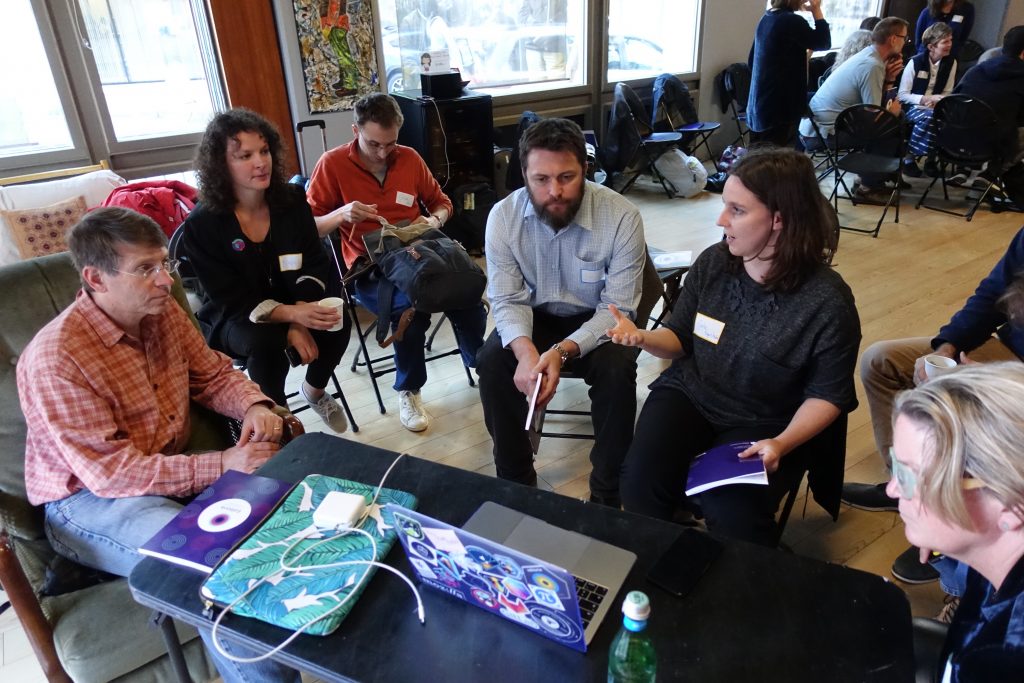
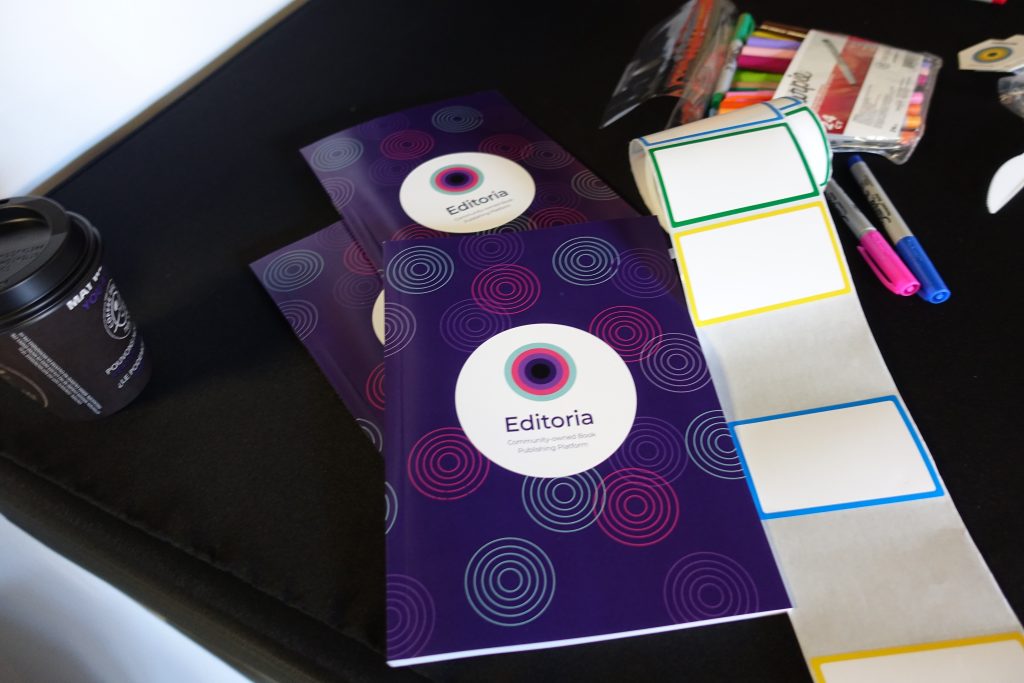
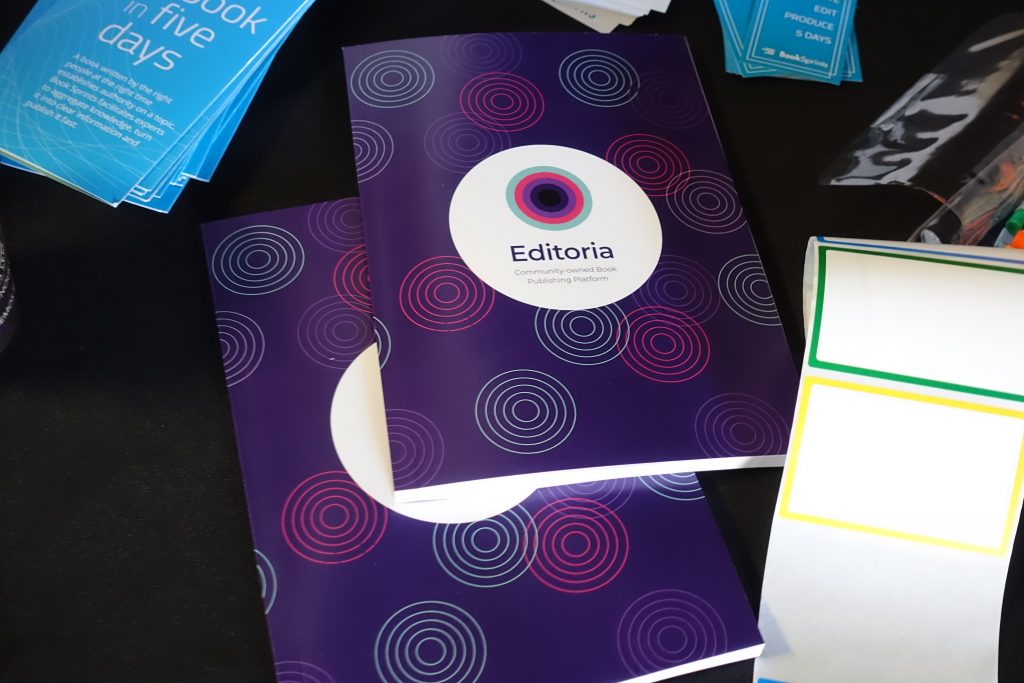
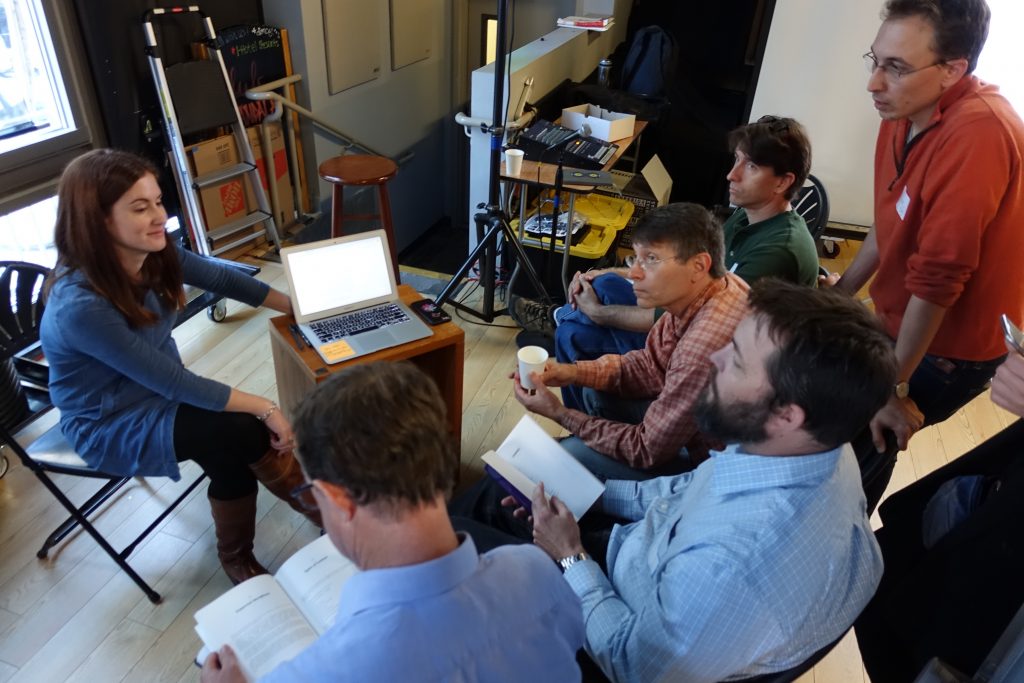
Day Three – Done!
All done on the final and third day of the Editoria Book Sprint… book coming soon!
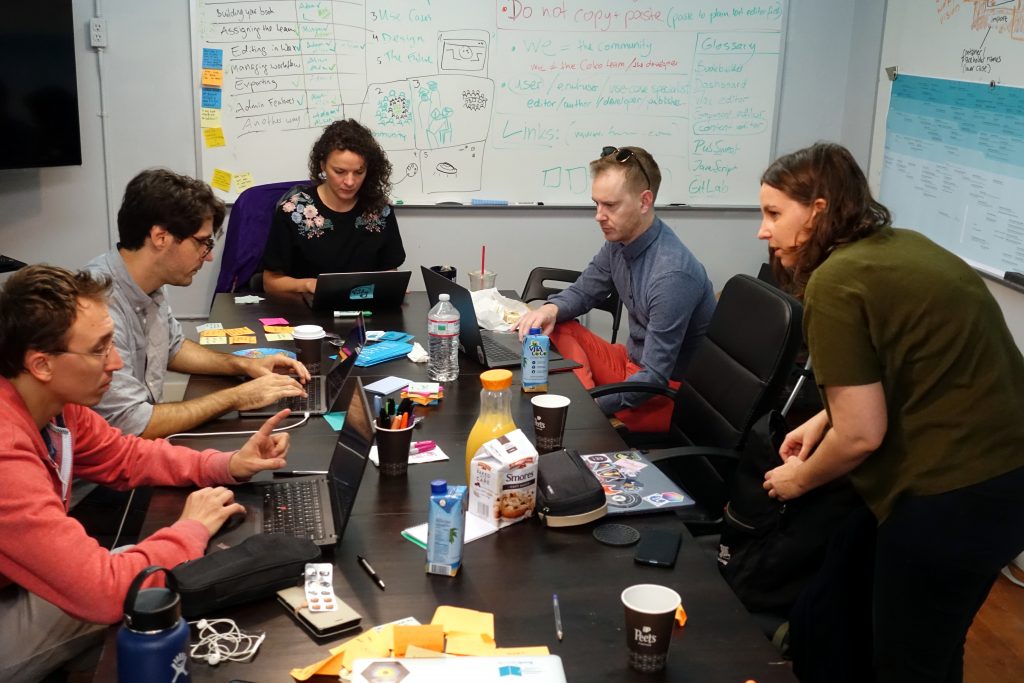
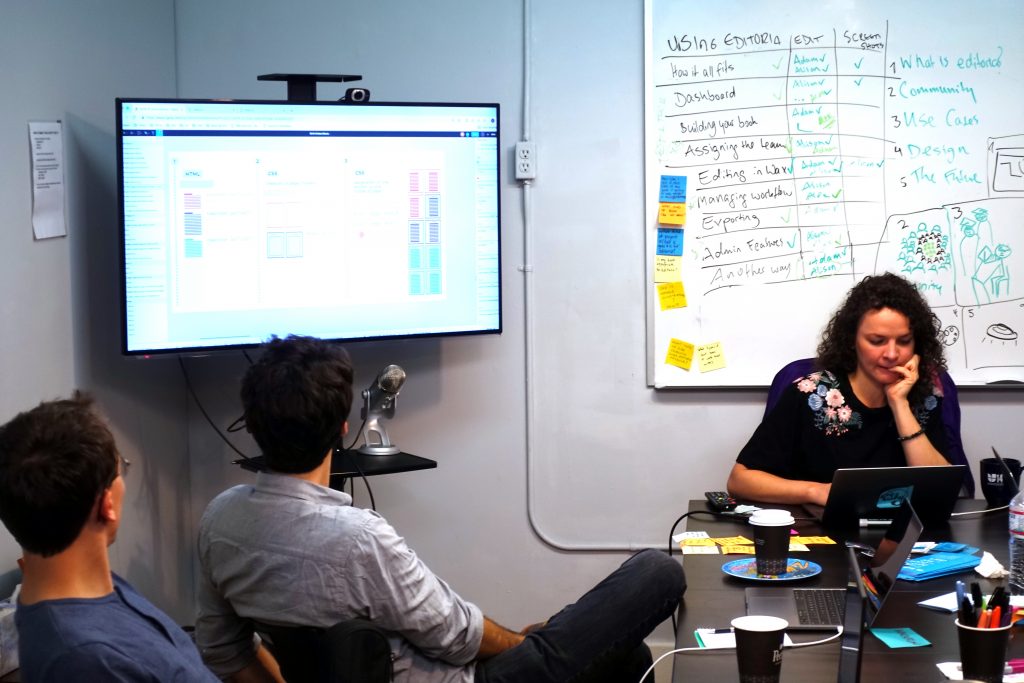
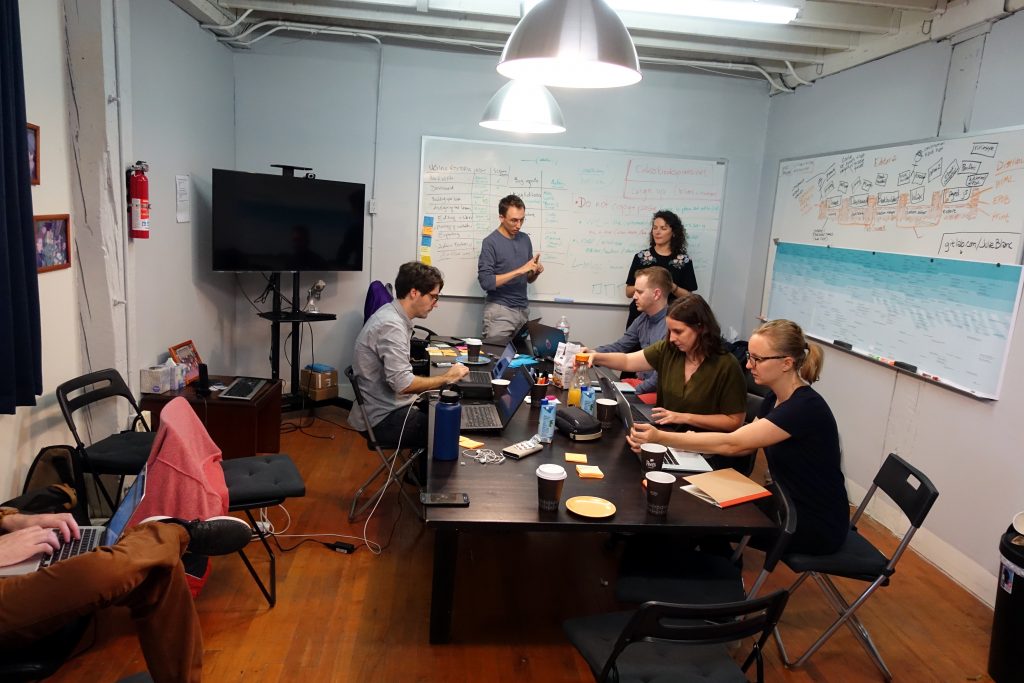
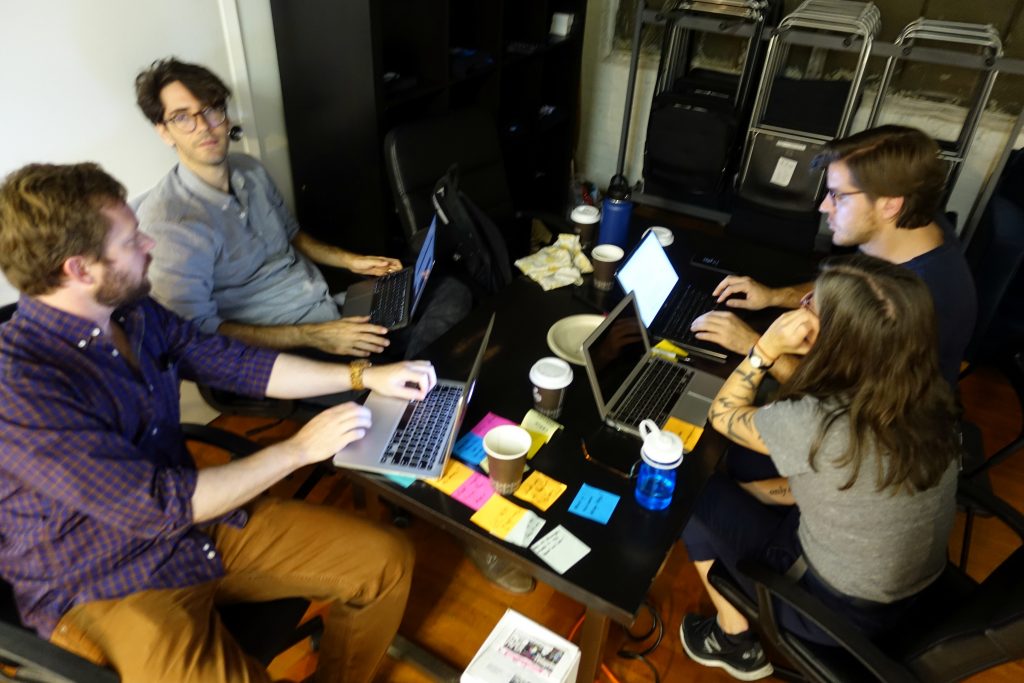
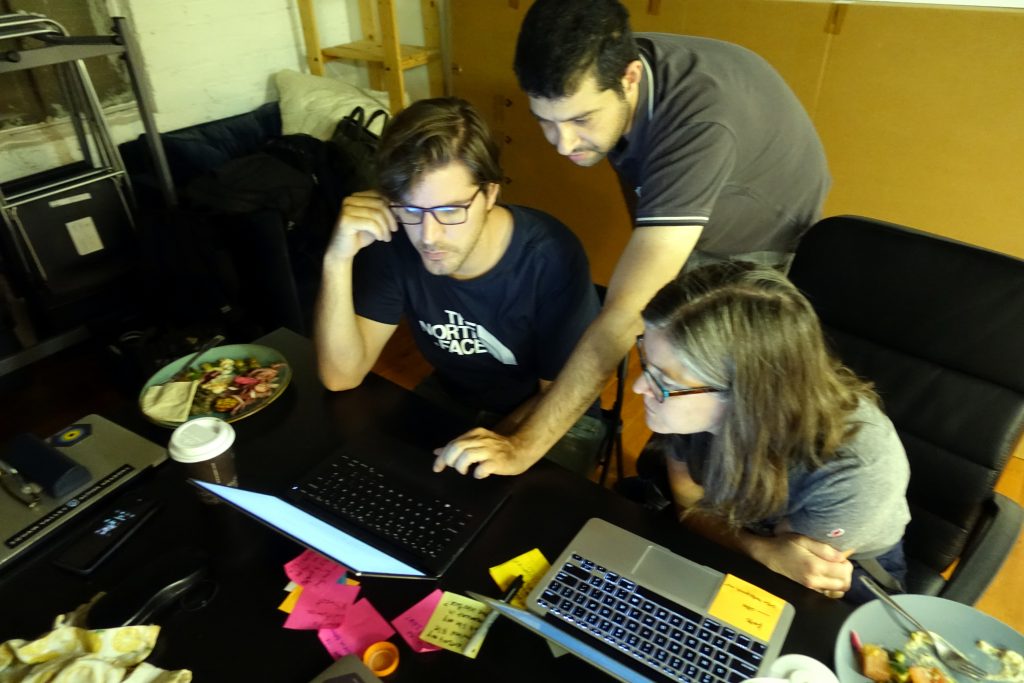
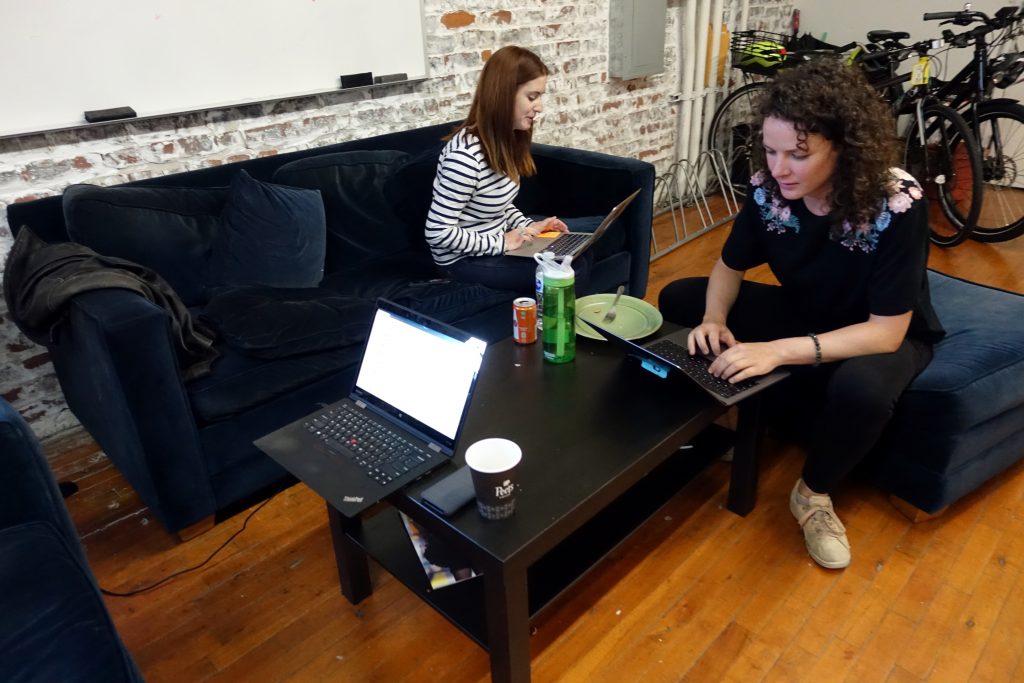
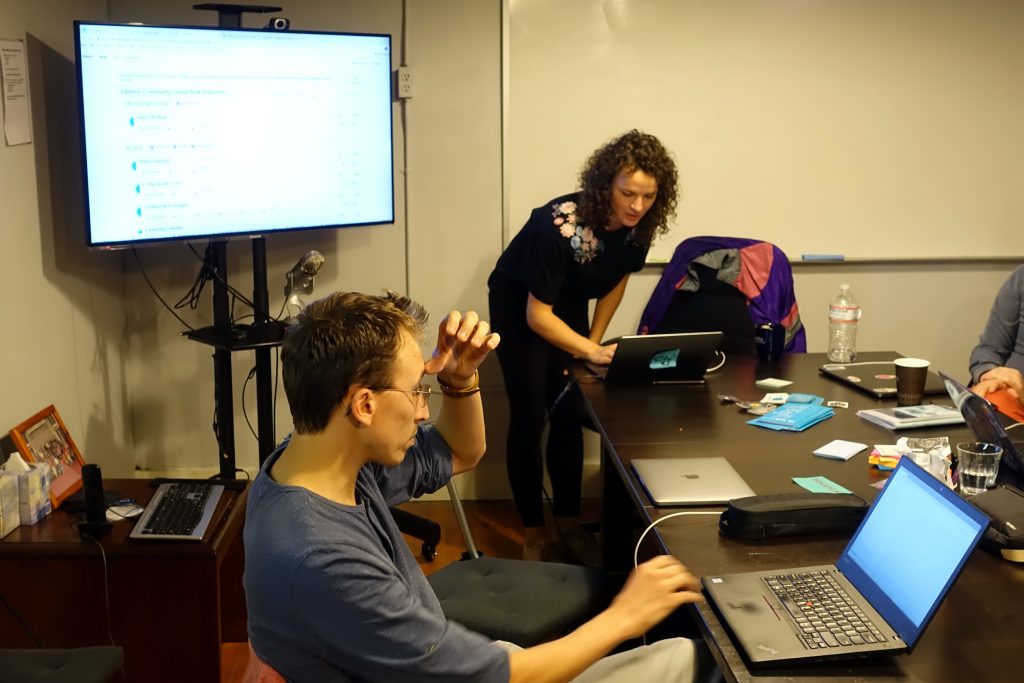
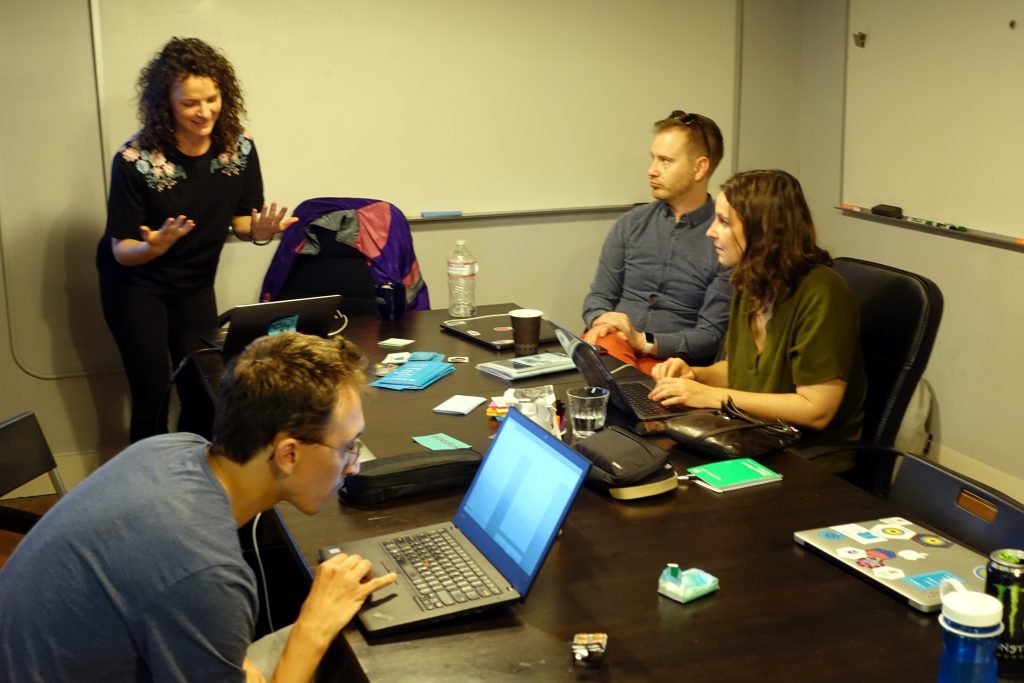
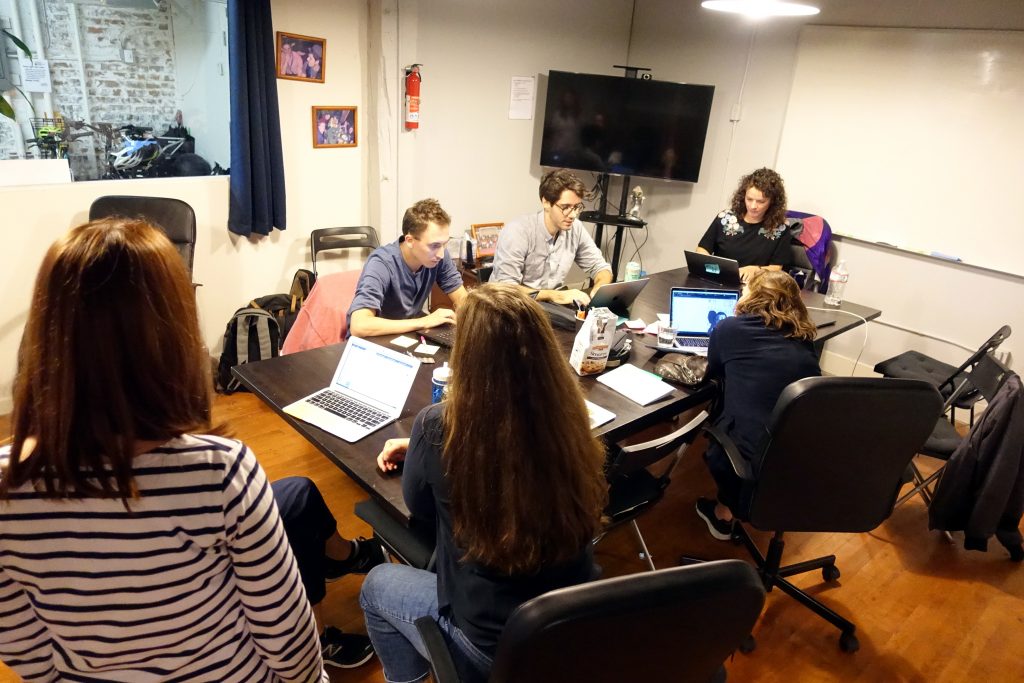
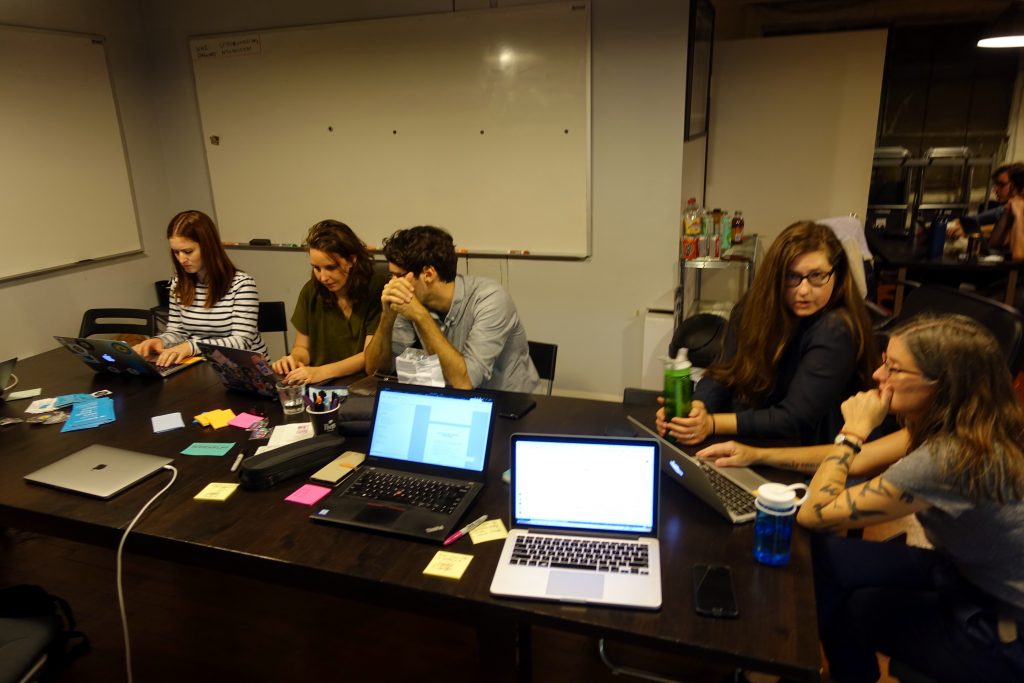
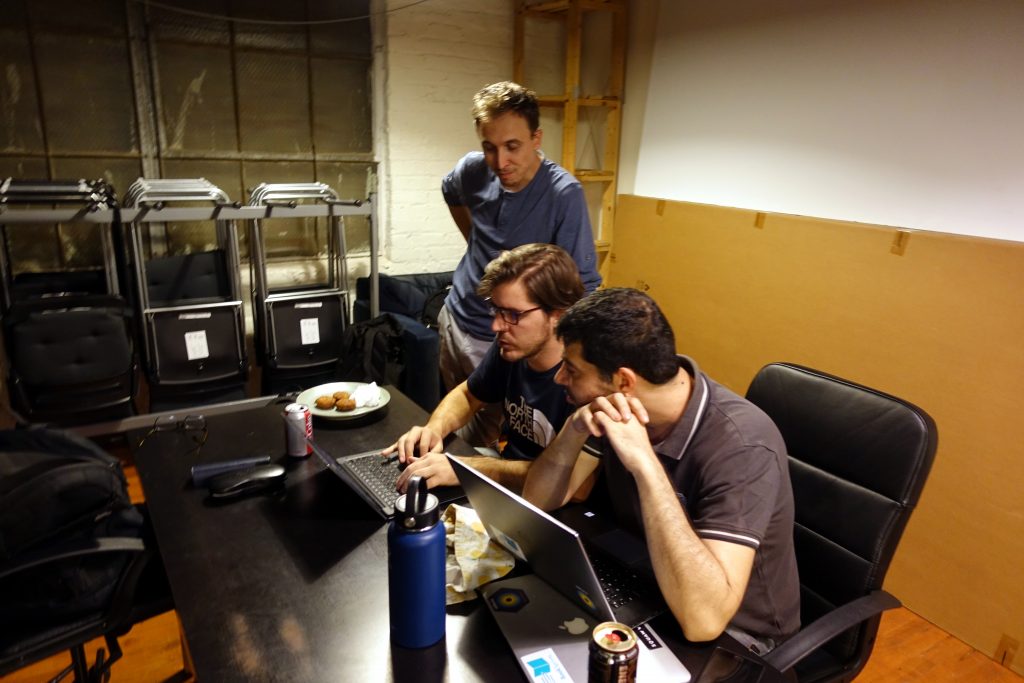
Day two Book Sprints
Day two done! last one about to begin…
